Agriculture & Environment
Prof. Elly N. Sabiiti Delivers Valedictory Lecture to CAES Community, Recounts His 43-year Experience at Mak
Published
3 years agoon
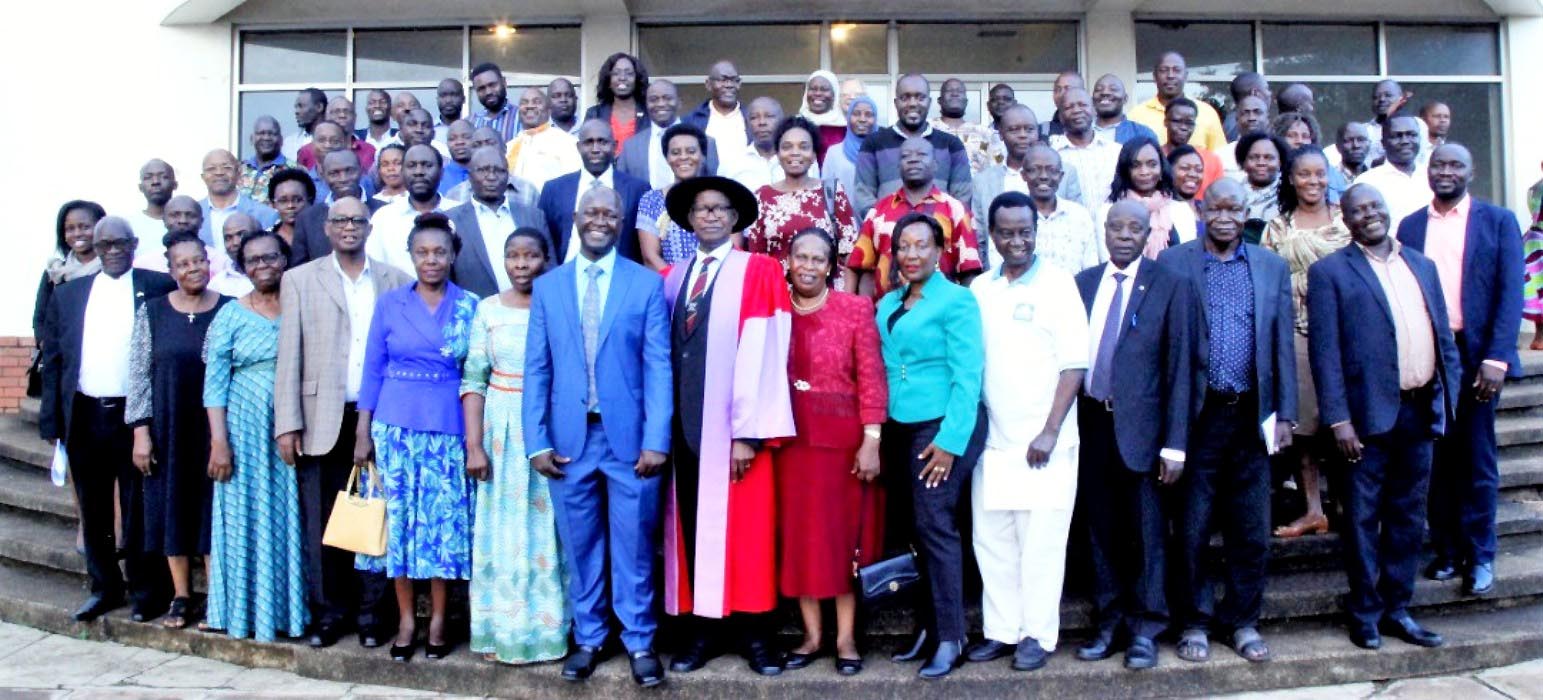
Theme of the Lecture: “My Inspirational Academic Track Service at Makerere University: A Case for CAES”
After 43 years of dedicated service to Makerere University, Prof. Elly N. Sabiiti, a prolific researcher and internationally recognized scholar, currently working at Busitema University–Faculty of Natural Resources and Environmental Sciences, retired from university service in 2021. On 2nd September 2022, Prof. Sabiiti, in company of his wife Joy Sabiiti delivered a valedictory lecture to staff at the College of Agricultural and Environmental Sciences (CAES), Makerere University. The lecture organized by the Office of the Principal, CAES and held in the Conference Hall at the School of Food Technology, Nutrition and Bio-engineering focused on his experiences, achievements, challenges, and strategies that enabled CAES to evolve from a Faculty to one of the most celebrated Colleges at the University. He specifically spoke about his career development in terms of teaching, research, graduate supervision, leadership, resource mobilization, representation on professional bodies, and outreach services, before sharing his thoughts for CAES to grow to higher levels and excel in Agricultural and environmental Sciences.
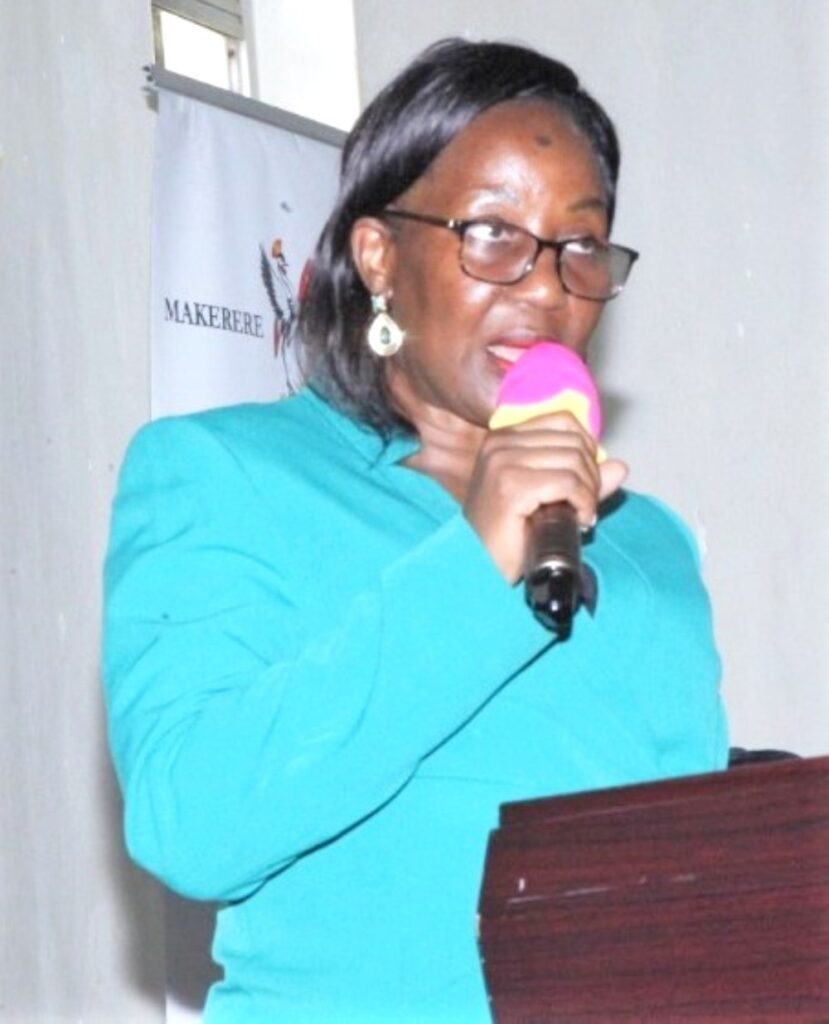
Addressing members of staff, Prof. Sabiiti noted that he was happy to be delivering his Valedictory Lecture at the time Makerere University is celebrating 100 years of existence and excellence. He appreciated Makerere University Management for providing a conducive environment and facilities that enabled him to excel to become an international professor. He equally appreciated all development partners who supported his academic journey. Having joined Makerere University in 1973 as an undergraduate student, Prof. Sabiiti rose through the ranks to become a professor in 1998. During his time at Makerere, Prof. Sabiiti served in various capacities and made enormous contribution towards the development of the College of Agricultural and Environmental Sciences (CAES) and Makerere in general. At the time of his retirement, he was serving as a Professor in the Department of Agricultural Production at CAES.
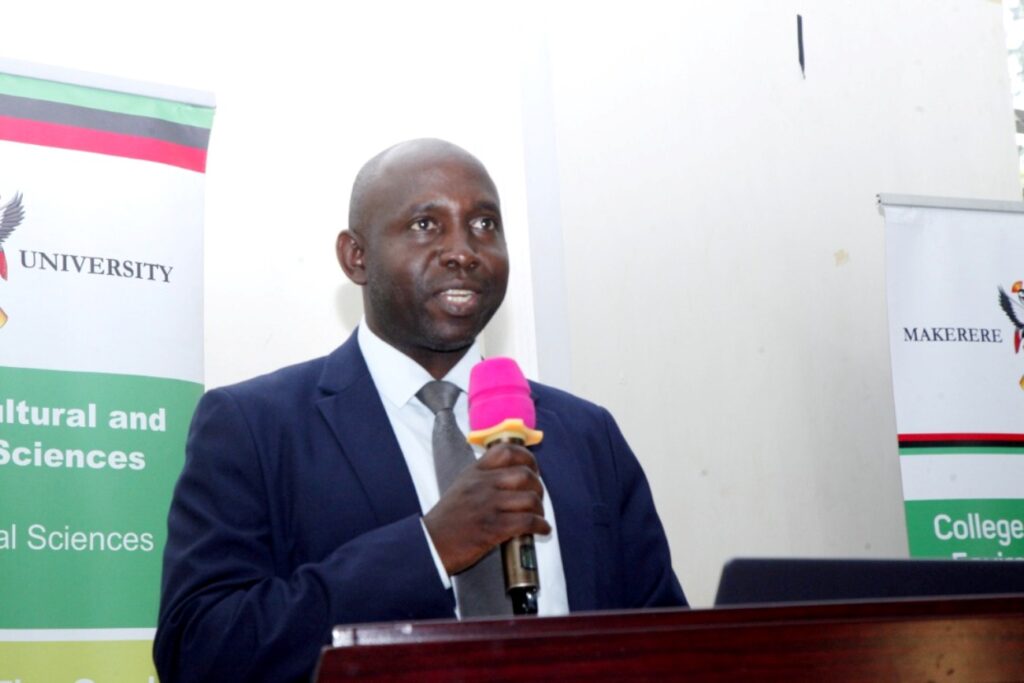
Academic contributions
At Makerere, Prof. Sabiiti had an illustrious career. He developed and taught several undergraduate and graduate courses namely; Undergraduate – Pasture Agronomy, Plant Genetic Resources and Utilization (developed), Seed Science and Technology (developed), Forest Fire Ecology, Agricultural Botany, Ecology and Crop Practical Skills. Graduate courses developed and taught by Prof. Sabiiti included Agronomy of Grasslands, Eco-physiology (developed), Seed Science and Technology (developed), and Plant Genetic Resources and Utilization. He played a key role in the transformation of the Agricultural Husbandry Forum to a Regional Forum based at Makerere University. He established collaboration at local and global levels with various institutions such as Swedish University of Agricultural Sciences, ILCA, AFRINET, ICRAF, NARO, ASARECA and this improved visibility of the Faculty of Agriculture and Forestry. Prof. Sabiiti supervised 33 graduate students, 26 MSc and 7 PhDs and had over 150 publications by the time he retired. He supervised and supported several members of staff to attain doctorates and to raise through the ranks to become senior lecturers and associate professors. These include, Dr Denis Mpairwe, an Assoc. Prof and former Head, Department of Agricultural Production; Dr Justine Kasozi Nambi, Senior Lecturer in the Department of Agricultural Production; Dr C Katongole, Senior Lecturer in the Department of Agricultural Production, and Coordinator Centre for Waste Management; Dr Sylvester Katuromunda, Senior Lecturer in the Department of Agricultural Production; Dr Jeninah Karungi-Tumutegyereize, an Assoc. Prof. in the Department of Agricultural Production; Dr A. Amoding, Department of Agricultural Production; Dr W Ekere, Department of Agricultural Production (Retired); Dr. A. R. Turinawe, Department of Agribusiness and Natural Resource Economics; Dr O. Walekhwa, Department of Agribusiness and Natural Resource Economics (Deceased); Dr Okello, Senior Lecturer, CoVAB; Dr H. Kato, Associate Professor, Kyambogo University; and Dr S. Mugasi, ED, NAADS.
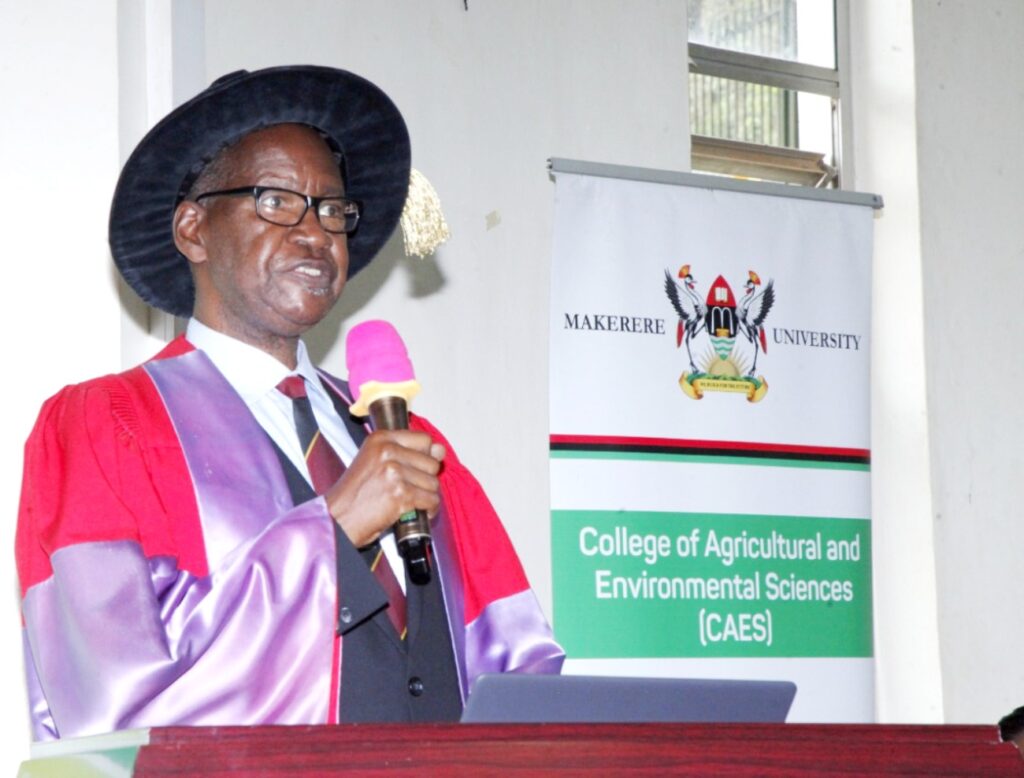
Curriculum Expansion
As Dean Faculty of Agriculture and Forestry, Prof. Sabiiti was instrumental in the review and expansion of academic programmes at CAES. “There used to be one MSc in Agriculture with options but these would not be reflected on the degree certificate so we revised the old curriculum and proposed specialized MSc degrees of the various options, MSc Crop Science, MSc Soil Sciences, MSc Animal Science, and MSc Agricultural extension and this increased post graduate numbers. I led the development of a highly popular program –Masters in Agribusiness Management that combined science courses with agricultural economics to produce agribusiness entrepreneurs and make agriculture a rewarding business. We also revised the undergraduate degree programme from three: Bsc Agriculture, BSc Food Science and Technology and BSc Agricultural Engineering to over 10 programs,” he noted. “By the time I handed over to the next Dean, Prof. Matete Bekunda in 2003, the Faculty was leading in Academic programmes, significant financial research funds, several publications, and staff with PhD as well as MSc.”
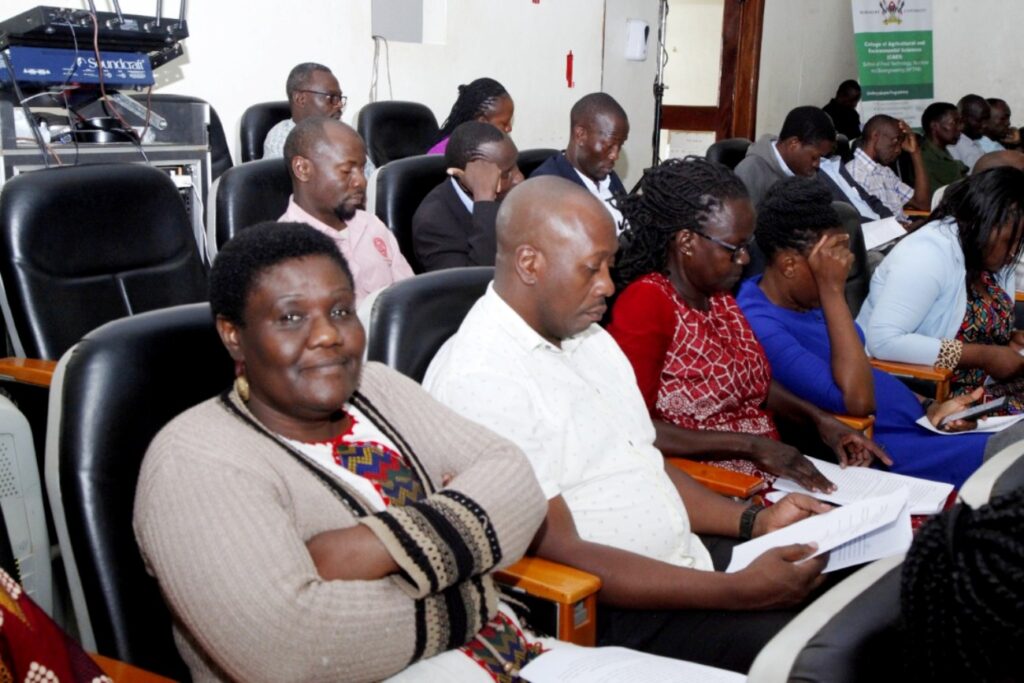
Administrative roles
Administratively, Prof. Sabiiti held several leadership positions spanning a period of nine years, 1993-2003. He served as Head, Department of Crop Sciences, and Dean – Faculty of Agriculture and Forestry (November 1994-2003). Recounting his experience, Prof. Sabiiti said it was during his period as Dean that the Faculty had unprecedented growth in terms of Infrastructural development – the evolution of two Faculties and a Research Institute, and academic programs (under /postgraduate programs). In 1998, the Faculty of Agriculture and Forestry split to two Faculties, Faculty of Agriculture and Faculty of Forestry and Nature Conservation. With NORAD support, a building/home was constructed to house the Faculty of Forestry and Nature Conservation. Kabanyolo University Farm also through a vigorous process was upgraded to Makerere University Agricultural Research Institute Kabanyoro (MUARIK). “With good collaboration with NARO, the Faculty benefited from World Bank funding for five years and the Continuing Agricultural Education Centre (CAEC) was constructed as well as a postgraduate building mainly for girls. Using some innovations, a football field was constructed at MUARIK. With this funding, several staff got further training for Masters and PhD and short courses thus building capacity,” he noted. With savings from overhead costs from research and donor-funded projects, the then faculty was able to purchase for the first time a Leyland bus which is still functional-over 24 years), a small Tata bus, a tractor, a car for the Deputy Dean and restored Fish ponds at MUARIK. The other major purchase was about 100acres of land at Namalyagonja bordering MUARIK land. This was to be used for income generation from crop production, especially growing maize. According to Prof. Sabiiti, the idea behind purchasing more land was to prepare for the future plan to have a College and eventually an Agricultural University.
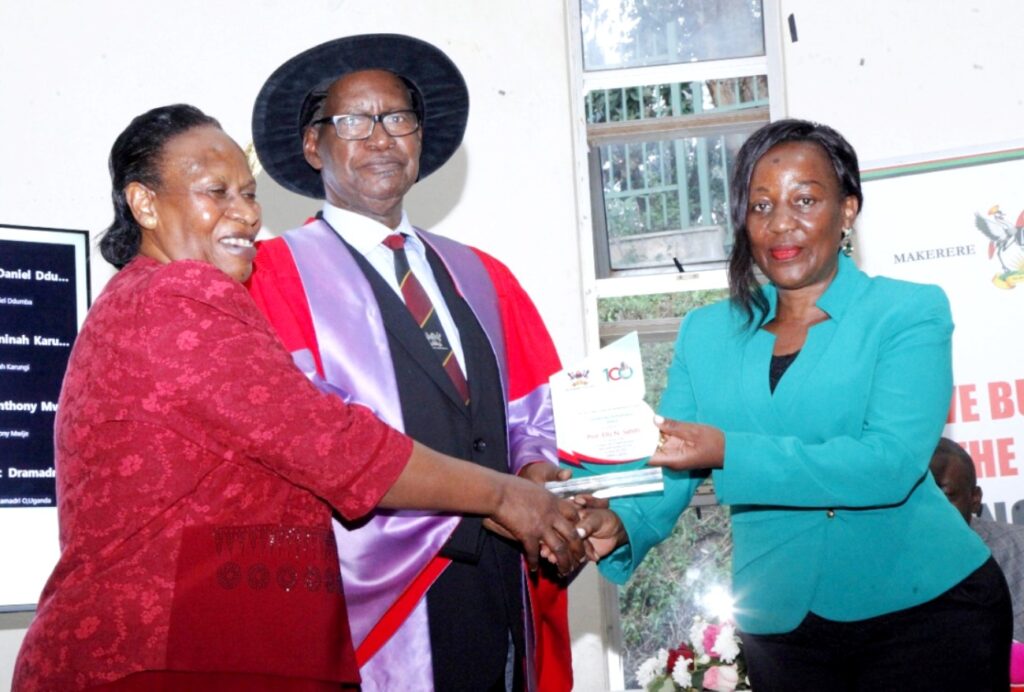
Other important contributions to the University
Prof. Sabiiti represented the Faculty of Agriculture in Senate. He also Coordinated the SIDA program he had initiated in 1999 to build PhD capacity for staff, improve lab equipment and enhance collaboration with Swedish Universities which was about 2m US$ for 15 years, and the Dryland husbandry Project based in Kazo, about US$850,000. He also served on Boards such NAADS, NEMA UNEB, UISTF /committees–I@Mak, where he had been appointed in his professional capacity. “The SIDA funding is one of my celebrated contributions to the College where we trained in joint collaboration with the Swedish University of Agriculture and produced 9 PhD staff, several MSc staff and also supplemented two staff to finish their PhDs (Drs Katuromunda and Obaa). ”While in Senate, Prof. Sabiiti participated in the formation of the Collegiate system at Makerere University. He also defended the approval for the establishment of the Agrostudies program between CAES and Israel Institute funded by the Israeli Government which has become very popular at Makerere and at other Ugandan Universities. He served as Chair for Professorial Inaugural Lectures for 14 years. He initiated collaboration between the University of Western Sydney, Australia and Makerere University 1995 todate where one PhD from CAES was sponsored by that University and she graduated this year in May 2022. He spearheaded the establishment of the first Makerere University Centre of Excellence in Waste Management at MUARIK which was commissioned by the Swedish Ambassador to Uganda in 2017. It has state-of-the-art equipment for bio-waste research. The Centre was also supported by Edmonton Centre of excellence in Waste management, Edmonton, Canada, Bank of Uganda, Makerere University top management and CAES.
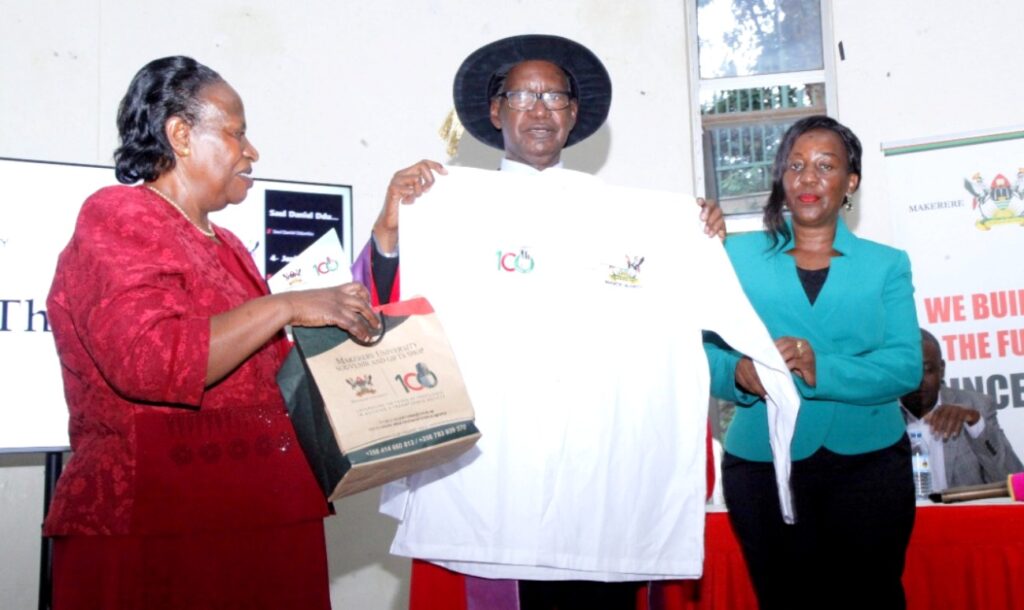
Recognition Awards based on performance as an Academician and administrator
While in service, Prof. Sabiiti received several awards, locally and internationally in recognition of his excellent performance. These include;
- Makerere University Appreciation Award by the Vice Chancellor Prof. Barnabas Nawangwe in recognition of his distinguished and dedicated service to Makerere University, specifically for the leadership and devotion as Chairperson for the Professorial Inaugural Lectures Organizing Committee 2007-2021.
- Was awarded the highest National award for Civilians as a Hero – Independence Golden Jubilee Medal by H.E. the President of the Republic of Uganda for his outstanding contribution in research, teaching, outreach, institutional building and administration and his loyalty to the Nation – 26th January 2017.
- Appointed by the Board of Directors of the Association for Strengthening Agricultural Research in Eastern and Central Africa (ASARECA) as the 1st President of ASARECA General Assembly, December 2011 because of his outstanding contributions in agricultural research and served for two years.
- Recognized by Makerere University in April 2015 for coordinating very successful research collaboration with SIDA financial support 2000-2015.
- Winner of the Presidential Excellence award for Science, technology Education Excellence 2008 for outstanding contribution in the understanding of ecological dynamics of rangeland /grasslands and institutional development.
- Winner of the Makerere University Vice Chancellor’s Innovations and Academic Excellence Award 2007/2008 for transforming the living conditions of Pastoral communities in Kazo rangelands.
- Received a Certificate of Recognition from Bishop Stuart University, Mbarara for his outstanding and dedicated services to the University as its pioneer Chairperson of Council 2003-2018.
- Received recognition (FELLOW) of the Uganda National Academy of Sciences (UNAS) for exemplary contribution to science and technology, 2004.
- Received Recognition Award from the Faculty of Agriculture, Makerere University for having contributed significantly to the establishment of the Continuing Agricultural Education Centre (CAEC) in 2001.
- Was awarded a golden plaque by the Faculty of Agriculture – Makerere University, in recognition of his outstanding leadership as Dean 1994 – 2003.
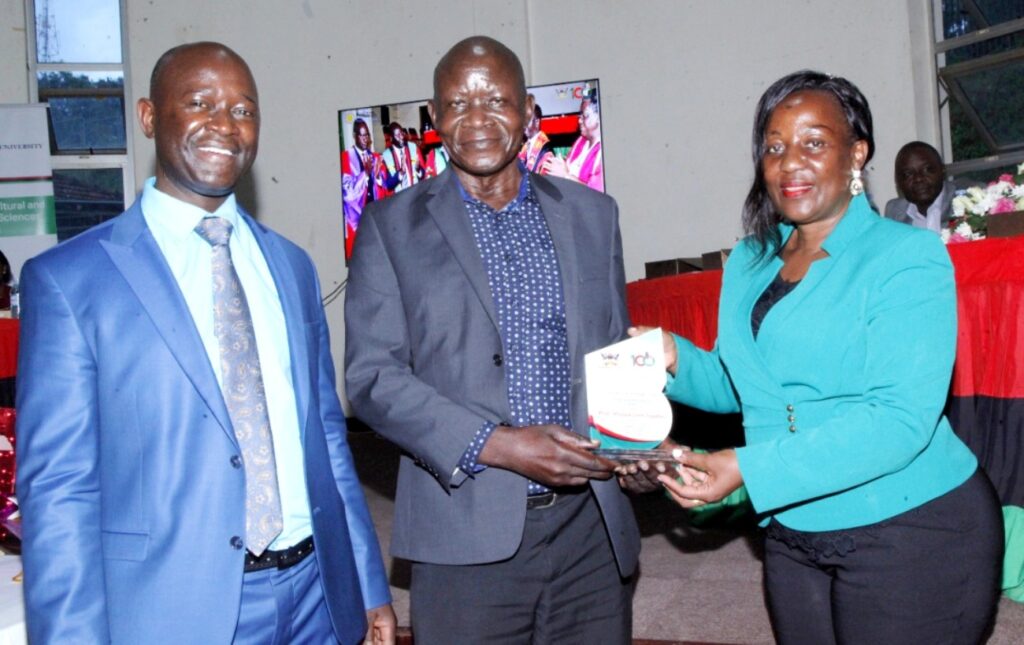
Regional Recognition
- Elected Vice President, African Academy of Sciences based in Nairobi 2019 todate.
- Recognized Fellow in 2007 of the African Academy of Sciences (AAS) based in Nairobi, Kenya for his outstanding scientific contribution in agronomy and Ecology.
- Received recognition award for Distinguished Service as Chairman of the National Steering Committee and National Coordinator of the Dryland Husbandry Project, Uganda from 1995-2003 from the Organization for Social Science Research in Eastern and Southern Africa (OSSREA), July 2004.
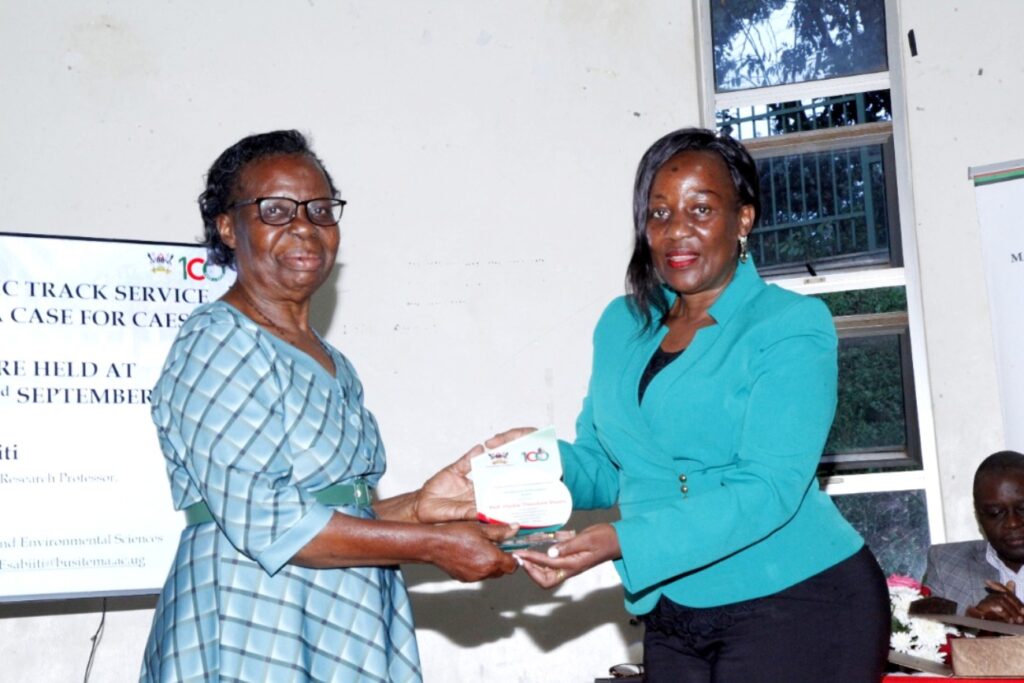
International Awards
- Won the prestigious Fulbright Fellowship for Senior African Scholars 2005/16 offered by USA Department of State and was implemented at the Ohio State University and became a Fulbright Scholar 2016 to-date.
- Elected a Fellow by the Governing Council of the Academy into The Third World Academy of Sciences (TWAS) 2001.
- Received recognition award for extraordinary service to the Inter Academy Council as a Member of the Panel on Science and Technology Strategies for Improving Agricultura Productivity and food Security in Africa from the Board of Inter Academy Council, The Netherlands, 27th August 2004.
- Appointed a TWAS Research Professor in Dec 2006 for five years by the Academy of Sciences for the developing World (TWAS) Secretariat based in Trieste, Italy and was hosted by the National University of Rwanda.
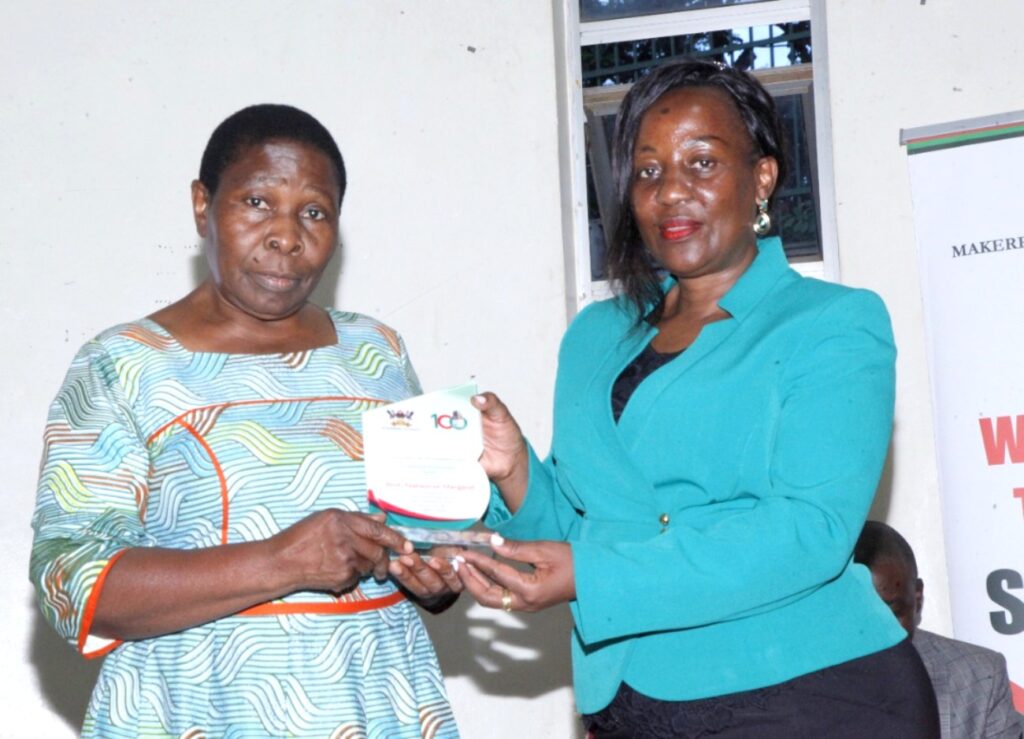
Extra Curricula Activities
- Served on Busitema University Council from 2015-2021 and also Chaired Student Affairs and Disciplinary Committee and Appointments Board.
- Appointed twice by Makerere University as Orator and presented citation for H.E. Yoweri Tibuhaburwa Kaguta Museveni for recognition of his contribution to education, agriculture, fight against HIV/Aids and was awarded D Laws (H.causa) 2019, and for the Distinguished Authorship Award for writing a dictionary-Katondoozi in local language – presented to H.E. in 2020.
- Appointed member of the Board of Trustees of the Uganda Independence Scholarships Trust Fund March 1999 to date. This is a Presidential Appointment.
- Appointed Director on the National Agricultural Advisory Services (NAADS) board by the Minister of Agriculture, Animal Industry and Fisheries, 2002 to 2008.
- Appointed by the Permanent Secretary, Ministry of Education and Sports to serve as Chairman of the Curriculum Subcommittee for the Agricultural Colleges in 2000 that reviewed the curriculum and recommended a two-year Diploma instead of three years.
- Appointed by the Chancellor of Bishop Stuart University, Mbarara as the first Chairman to its Council, June 2003 to date.
- Served as Chairman of the Agribusiness Advisory Committee between the Faculty of Agriculture and the Private Sector in Uganda to monitor a new Masters degree program in Agribusiness Management (1999- 2003).
- Appointed by OSSREA as the National Co-coordinator, Dryland Husbandry Project funded by SIDA. The Faculties of Agriculture and Veterinary Medicine and MAAIF and NARO implemented the project from 1996 –2003.
- Appointed by the Vice-Chancellor, Makerere University to the MU/Government Committee of 14 that prepared a document on Human Capacity building for decentralization supported by the Rockefeller Foundation in 1999/2000. The project attracted about US$17M from the Rockefeller Foundation, World Bank and Government of Uganda. The implementation committee became I@Mak.com – Innovations at Makerere Committee.
- Appointed by Ministry of Education and Sports as member of the Joint Commission for setting up the University of Agriculture and Environmental Sciences 1995-2002. The university has been established and is called Gulu University. He was also chairman of the Curriculum Committee that worked out the academic faculties and programs.
- Appointed member Taskforce for setting up Agricultural University in the North, by the Prime Minister of Uganda, 1994.
- Elected the first President of the newly formed Association of Uganda Professional Agriculturalists (ASUPA) 2002.
- Appointed board member of the Uganda National Examinations Board (UNEB) by the Minister of Education and Sports, 2002 to 2005 and was reappointed on the Board from 2006-2009.
- Member of the Management Committee of the National Agricultural Research Organization (NARO) 1995-2003.
- Member of the National Forum on the Plan for Modernization of Agriculture 1996-2003.
- Member of the National Steering Committee for the Plan for Modernization of Agriculture1996-2003.
- Appointed by Ministry of Agriculture to be Member of the National Steering Committee to Combat Desertification in Uganda, 1997 to 2010.
- National Coordinator, Plant Genetic Resources Coordinating Committee, 1992 -1997.
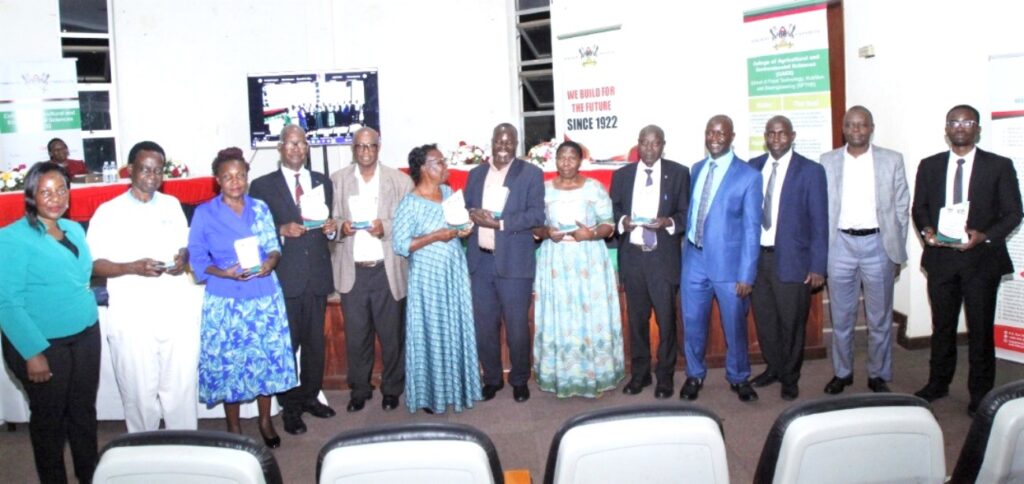
Prof. Sabiiti’s advice to members of staff
- While in service, work for the good of the institution and the good of others and you will be rewarded. “As a Professor at Makerere, I had purpose to build human capital. As a Lecturer, you should always have purpose as to why you are teaching and supervising. I came to Makerere to teach and build others. Learn to sacrifice for the good of others.”
- Mentoring means being able to offer a helping hand to a fallen person or a person struggling with unseen challenges and you do it willingly without expecting rewards from that person. Your expectations from that person is to be a better person.
- Makerere gives you the best environment to grow academically if you want to grow. Learn to love the institution and you will excel in whatever you do.
- To the academic leaders, there is need to balance administration and academics. If you don’t, you will be lost when you leave administration.
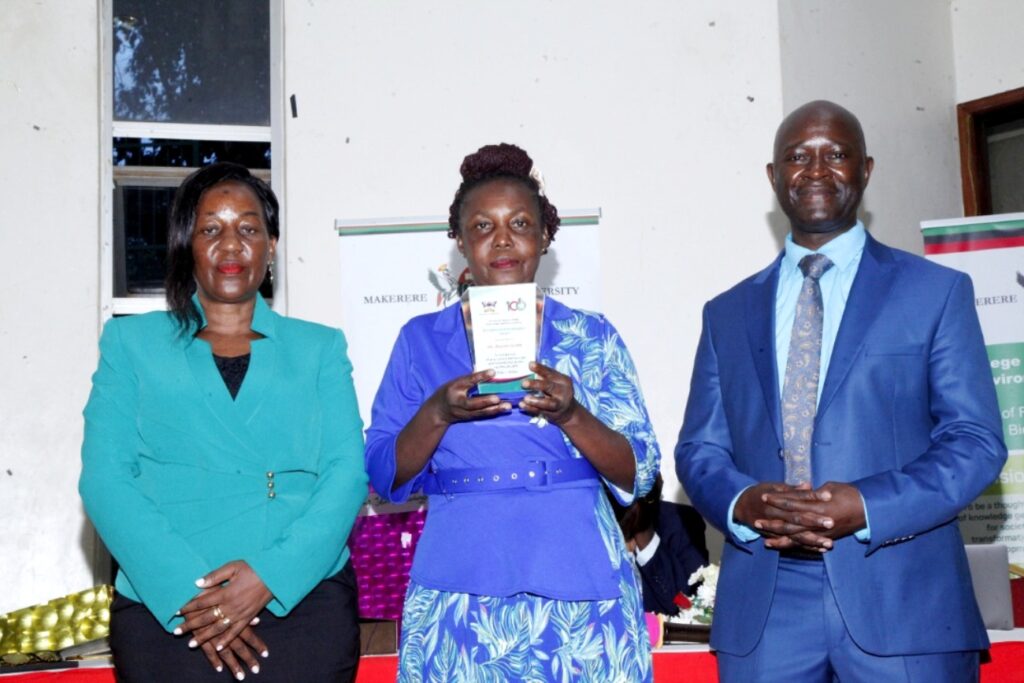
Prof. Sabiiti’s thoughts on the future of CAES
Prof. Sabiiti implored staff to remain united with a common vision for the College. “Focus on growing CAES into a University of Agricultural & Environmental Sciences. Looking back, CAES has had steady developmental phases initially from the Faculty of Agriculture and Forestry to a College status and this has been possible through dedicated service of the various leaders and staff. This practice should be further deepened to turn CAES into a much bigger Institution with more Departments, Schools, Centers, Institutes that fit in the NDPIII and Uganda Vision of 2040. You have a very good Strategic Plan 2020-2030 which should now be regularly revised to focus on what you want to achieve. Use the capacity you have on ground to drive your Strategic Plan. You should all remain united with a common vision championed by your leaders if you want to attain higher levels of development.”
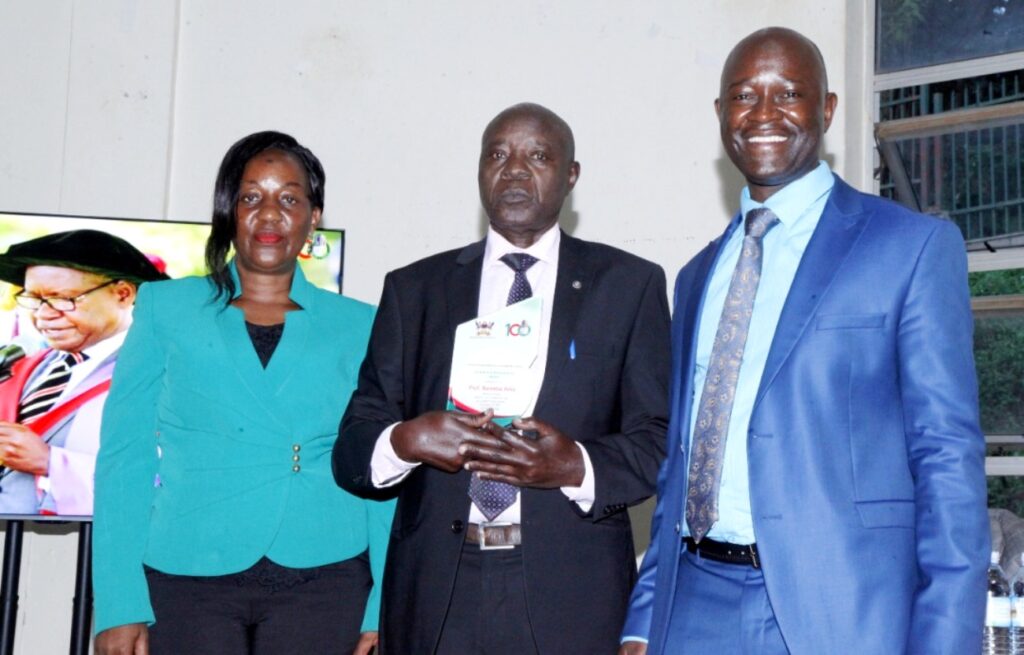
Appreciation
Prof. Sabiiti appreciated the Principal of CAES, Prof. Gorettie Nabanoga for inviting him to deliver his valedictory lecture, and the Deputy Principal, Prof. Yazhidi Bamutaze for coordinating the program.
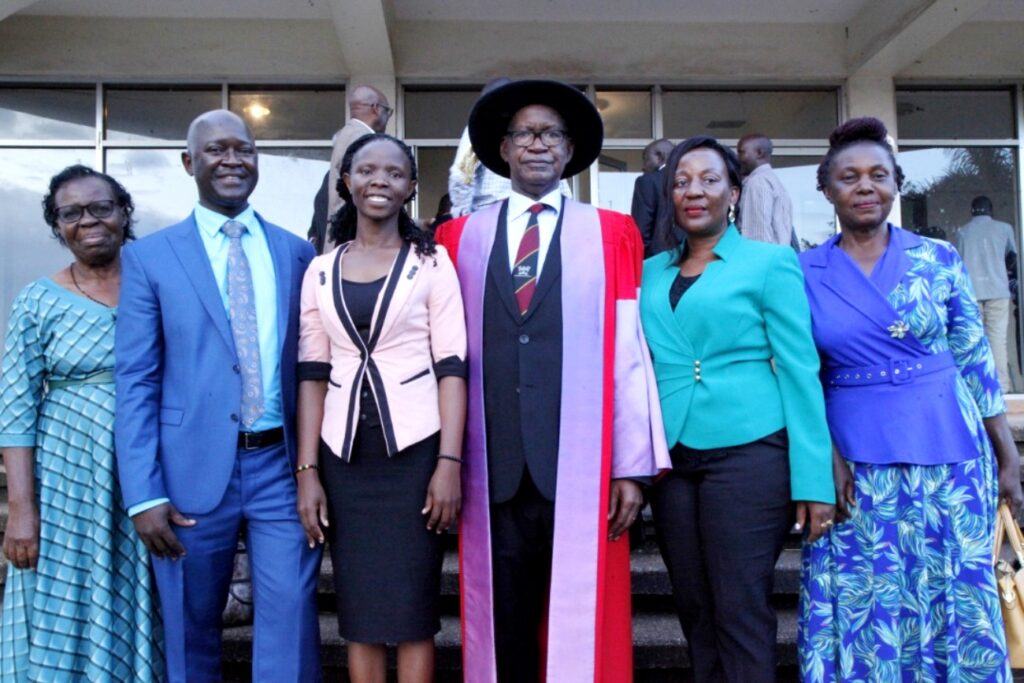
Recognition of retired staff
During the event, the Principal, CAES presented an award to Prof. Sabiiti in recognition of his distinguished service to Makerere University. The Principal, together with the Deputy Principal also presented appreciation awards to other retired members of staff in recognition of their service to Makerere. These included; Prof. Bareeba Felix, Prof. Tenywa Moses, Prof. Hyuha Theodora, Prof. Ssembajjwe Gombya, Prof. William Kyamuhangire, Prof. Nabasirye Margaret, Prof. Mutetikka David, Prof. Tenywa John Stephen, Dr Matsiko Francis, Dr Okiror John James, Dr Nagadya Harriet, Dr Christine Magala Nyago, Dr Michael Iwadra, Ms. Nanziri Sarah, Ms. Kawooya Teddy Mary, Mr. Eugene Manda, Mr. Tibakuzira Arnest, Mr. Emmanuel Nabyama, Ms. Toepista Namayanja, Everst Emuron, and Ms. Benny Kaitesi.
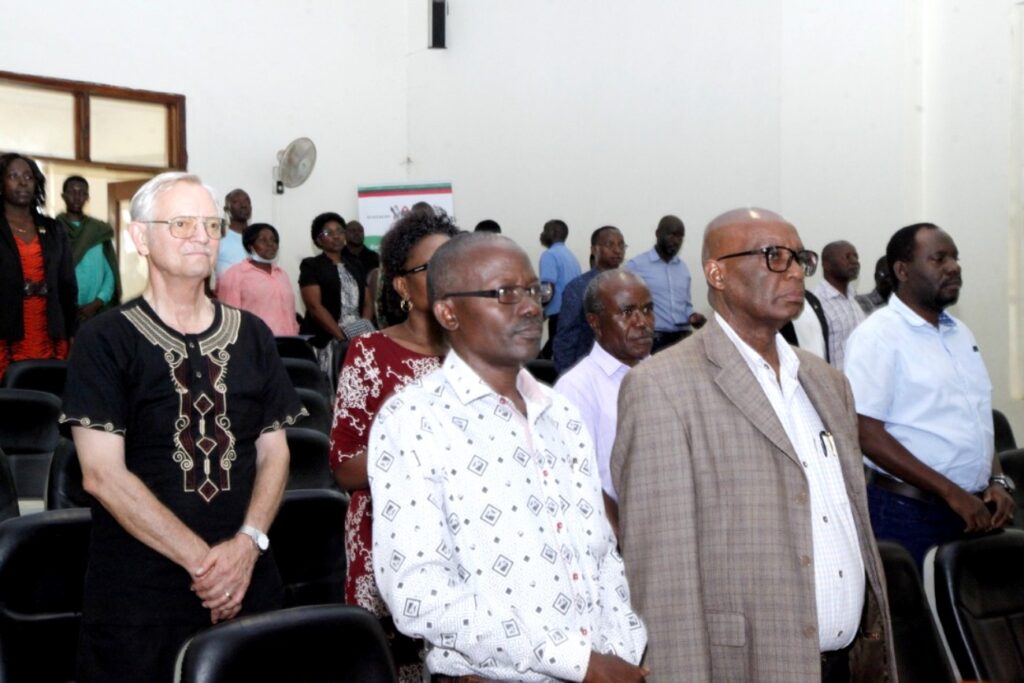
The Principal appreciated Prof. Elly Sabiiti and the other retirees for serving Makerere with utmost diligence. “It’s because of their sacrifices that CAES has grown and excelled in many aspects,” she noted.
The Valedictory Lecture was moderated by Dr Patrick Byakagaba, a member of staff at CAES.
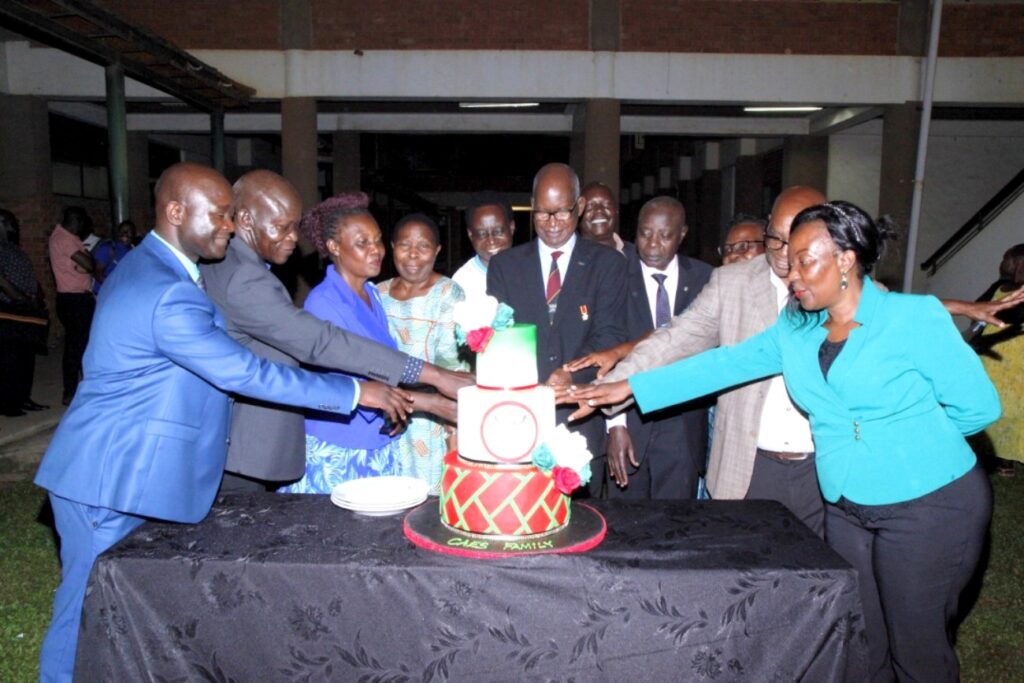
Full presentation attached below.
You may like
-
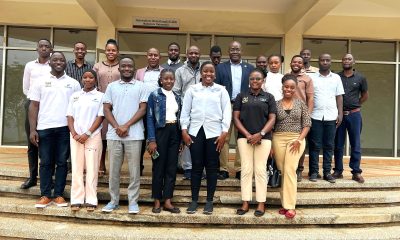

SophiA Project Upgrades Medical Infrastructure at Buvuma Health Centre IV, Trains Technicians for Maintenance Works
-
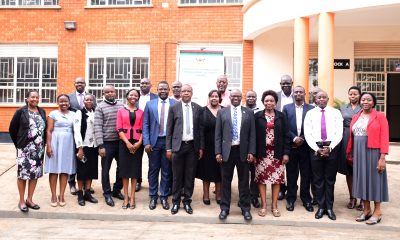

School of Business Conducts Strategic Leadership Training for Makerere University Managers
-
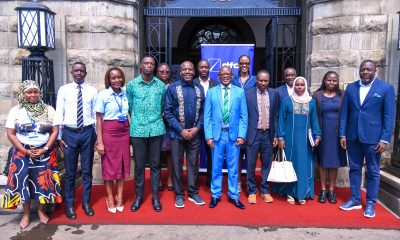

Makerere University, DFCU Bank Sign MoU to Advance Innovation, Student Leadership and Research
-
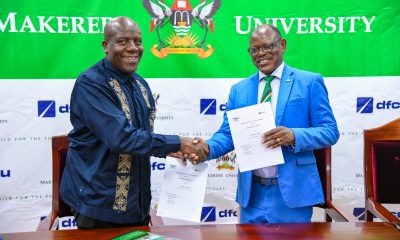

Press Release: Mak & DFCU Partner to Enhance Higher Education, Research & Student Support
-
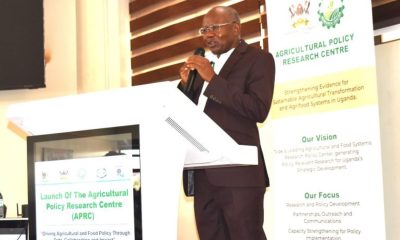

APRC Trains Graduate Students & Stakeholders in the Use of the African Agriculture Adaptation Atlas
-
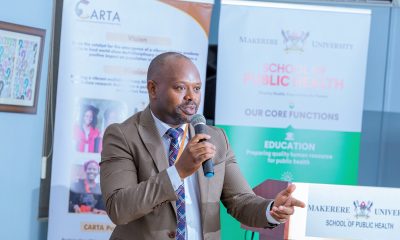

CARTA Focal Person Dr. Isunju Appointed to MakPress Editorial Board
Agriculture & Environment
SophiA Project Upgrades Medical Infrastructure at Buvuma Health Centre IV, Trains Technicians for Maintenance Works
Published
4 days agoon
July 9, 2025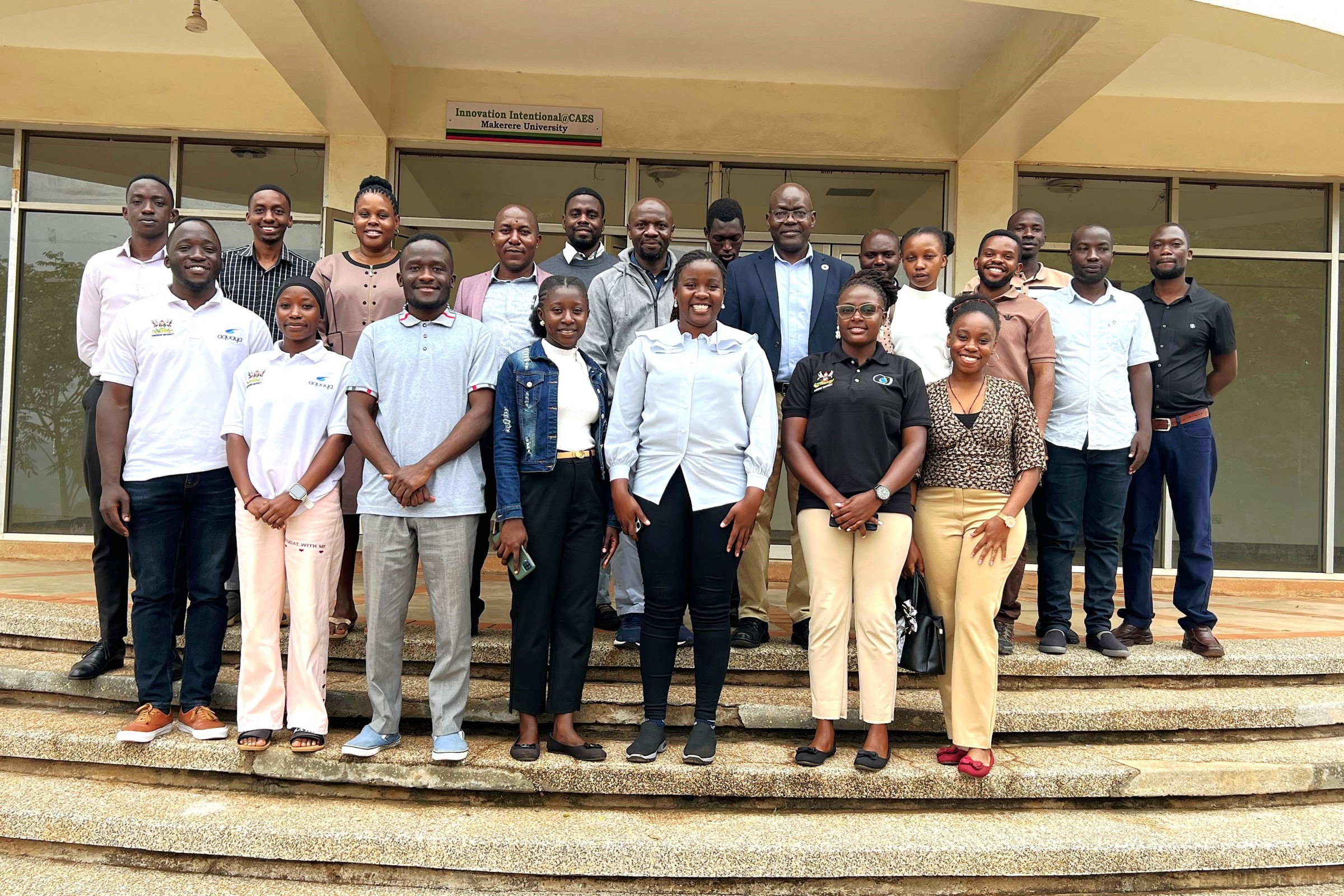
Overview of the Sustainable Off-Grid Solutions for Pharmacies and Hospitals in Africa (SophiA) Project
Despite ongoing urbanization across Africa, the majority of the population still resides in rural and remote areas, where infrastructure development remains limited. These regions face significant challenges such as lack of access to healthcare, education, clean water, and reliable electricity, contributing to higher rates of illness and poverty compared to urban centres. According to reports, Sub-Saharan Africa has approximately 120,000 public health facilities (22,000 hospitals and 98,000 health posts), of which around 26% lack any electricity access, and only 28% have reliable power supply.
Access to good healthcare is critical for sustainable development. However, many rural medical centres operate under harsh conditions – using polluted water, lacking cooling for medicines, and facing poor sanitation – largely due to unreliable electricity and water supply. Although half of the population in Sub-Saharan Africa lacks electricity, the region has abundant renewable energy potential that can be effectively harnessed through off-grid solar photovoltaic (PV) systems.
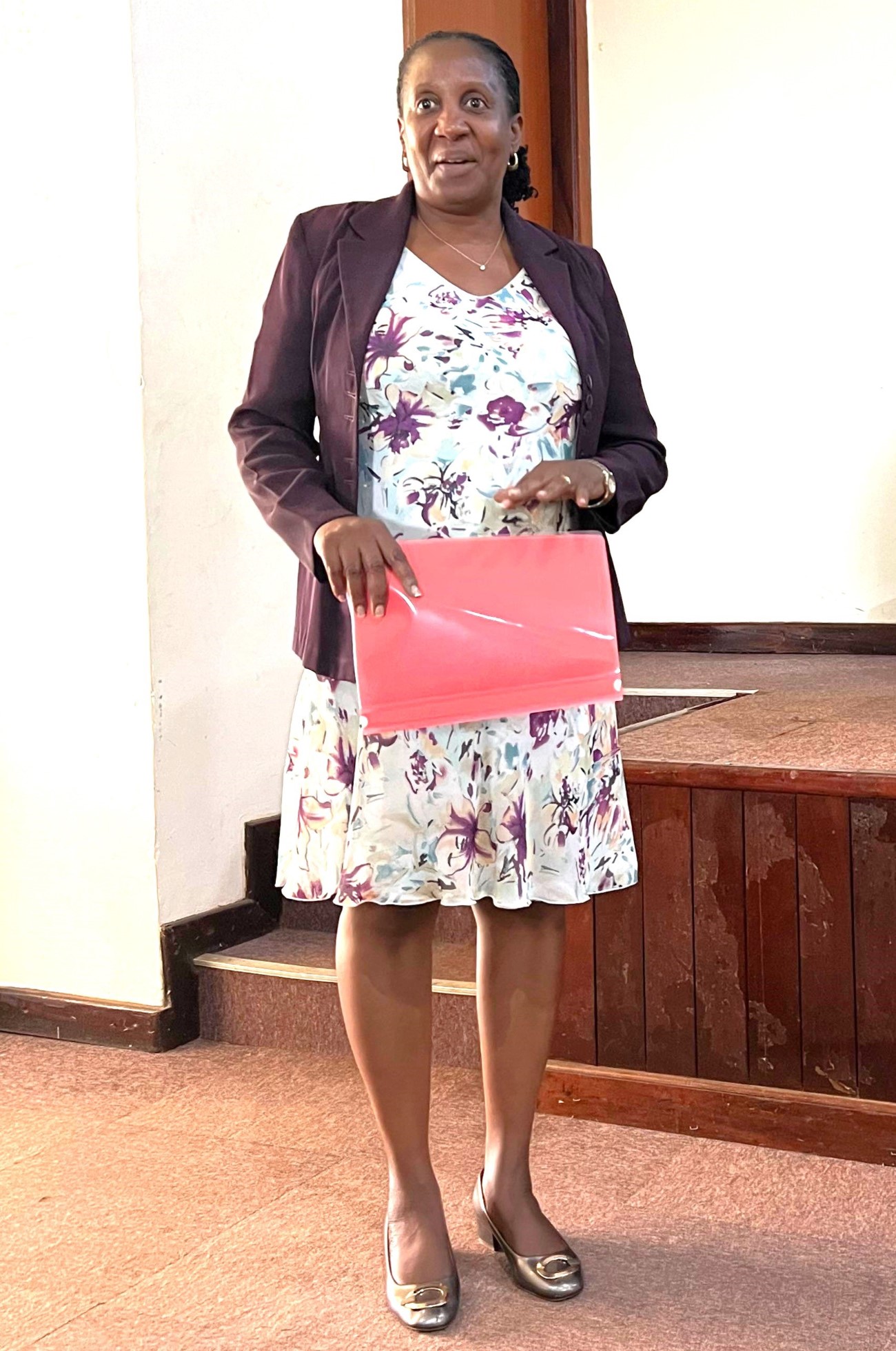
To address the above-mentioned challenges facing the African Continent, Makerere University in partnership with 13 organizations across Europe and Africa developed a project titled, “Sustainable Off-grid solutions for Pharmacies and Hospitals in Africa (SophiA)”. The five-year project that began on 1st October 2021 is funded by the European Union (Project: 101036836 – SophiA – H2020-LC-GD-2-3-2020). At Makerere University, the project is coordinated by Dr. Nicholas Kiggundu, Associate Professor in the Department of Agricultural and Biosystems Engineering, College of Agricultural and Environmental Sciences (CAES).
Piloted in Burkina Faso, Cameroon, Malawi, and Uganda, SophiA aims to provide sustainable off-grid energy solutions to rural and remote health facilities, fostering economic growth and ensuring equitable access to energy and healthcare. Using various technologies, such as photovoltaics, solar thermal, electrical and thermal storage, water treatment and natural refrigerants with low global warming potential, SophiA has developed and manufactured locally innovative, modular, affordable and efficient solar powered systems for providing:
- Safe and clean drinking water, free of bacteria and viruses, and deionised water for medical purposes;
- Hot water and steam production for thermal requirements of the hospitals;
- Cooling of medicines and food at +5°C;
- Low temperature storage of blood plasma and vaccines at -30°C;
- Ultra-low temperature storage of sensitive medication (e.g. some Covid-19 or Ebola vaccines) at -70°C.
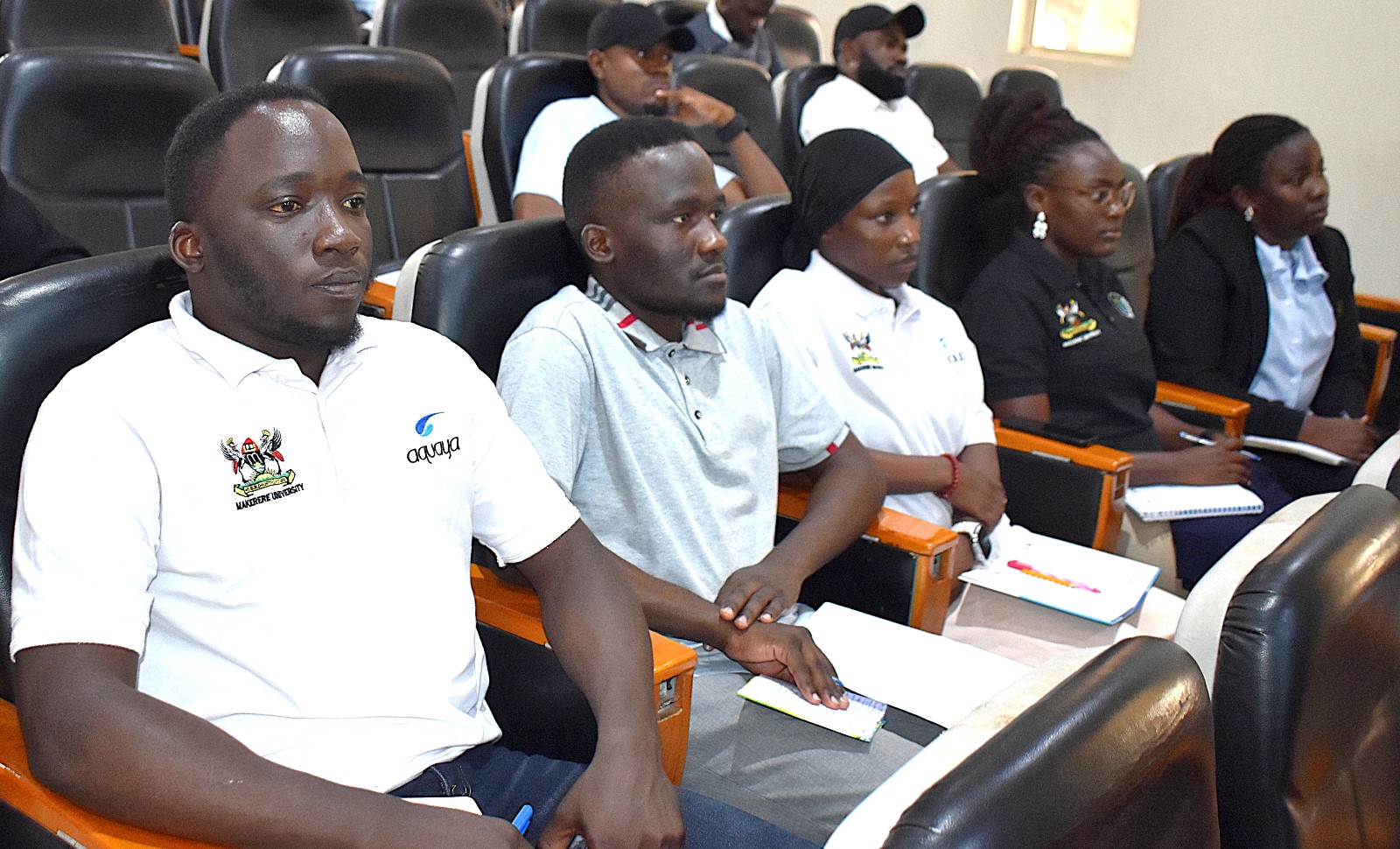
In addition, PV MedPort, a simple and 100% solar-powered solution has been developed and tested as a mobile health care station in small remote areas in 4 different geographical conditions in Africa. The SophiA system has been manufactured in Africa and will provide, for the first-time, innovative solutions based on climate-friendly natural refrigerants to cover cooling demand for three different temperature ranges (-70°C, -30°C and +5°C). The system has been tested and demonstrated at four rural hospitals in remote regions throughout the African continent covering the major geographical regions and different climatic conditions in Burkina Faso, Cameroon, Malawi and Uganda.
SophiA Project initiatives in Uganda
In Uganda, all Health Centre IV hospitals with surgical theatres have been connected to the national grid except Buvuma Health Centre IV, which serves over 120,000 people scattered across 52 islands. Recognizing this gap, the Ministry of Health selected Buvuma Health Centre IV for the SophiA project to demonstrate sustainable off-grid solutions.
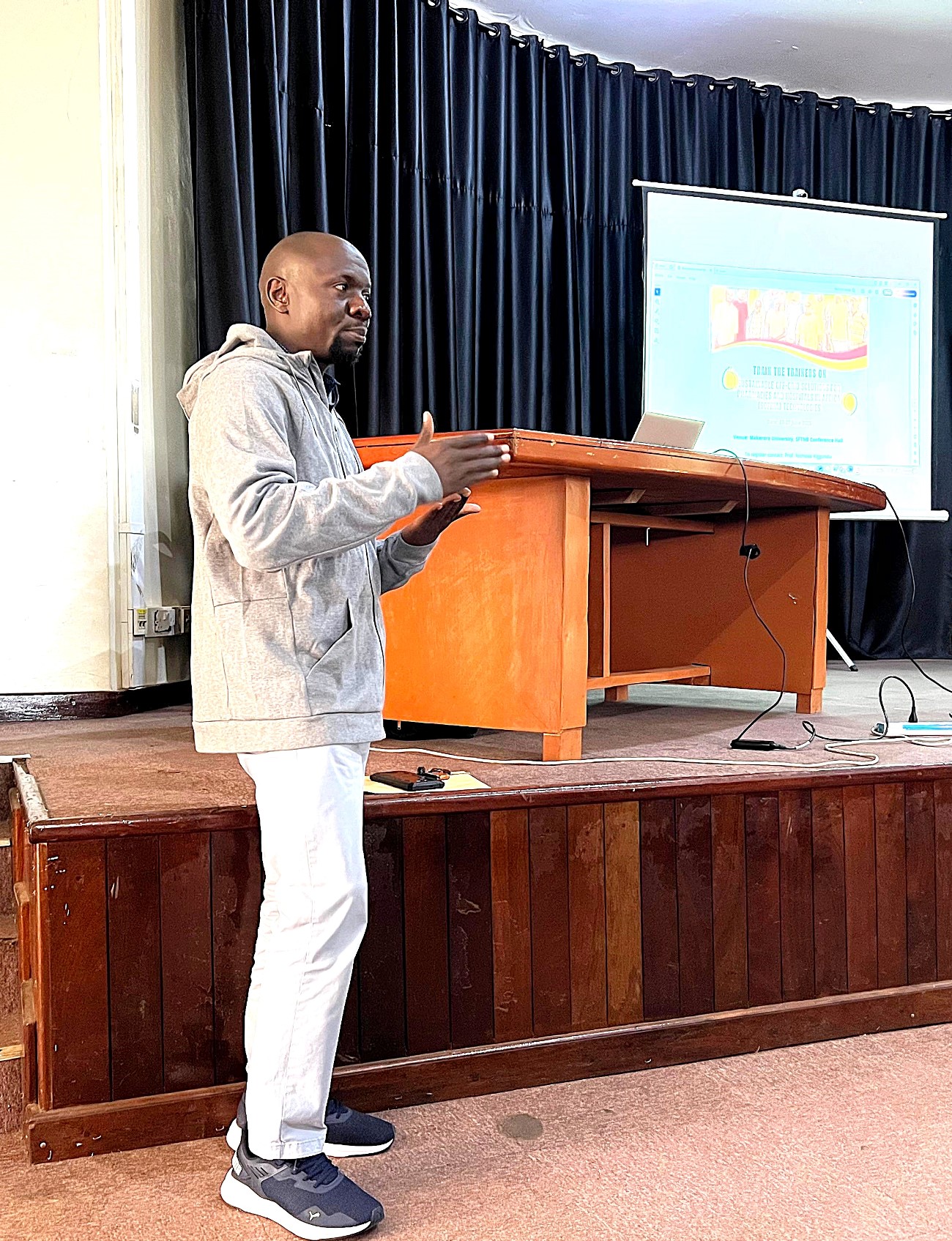
The SophiA System at Buvuma Health Centre IV provides the following services:
- Off-grid electricity supply
- Safe, clean drinking water for patients, staff, and the community
- Hot water and steam systems crucial for maternal care
- Solar-powered cooking and meal preparation
- Cooling systems for surgery and intensive care units
- Refrigeration for medicines at +5°C, blood plasma storage at -30°C, and ultra-low temperature storage (-70°C) for sensitive vaccines such as those for COVID-19 and Ebola
Training of Trainers Workshop
As the SophiA project approaches completion in September 2025, it is vital to establish a skilled pool of technicians capable of handling maintenance and minor repairs of the system components, including solar panels, water treatment units, generators, batteries, and cooking kits.
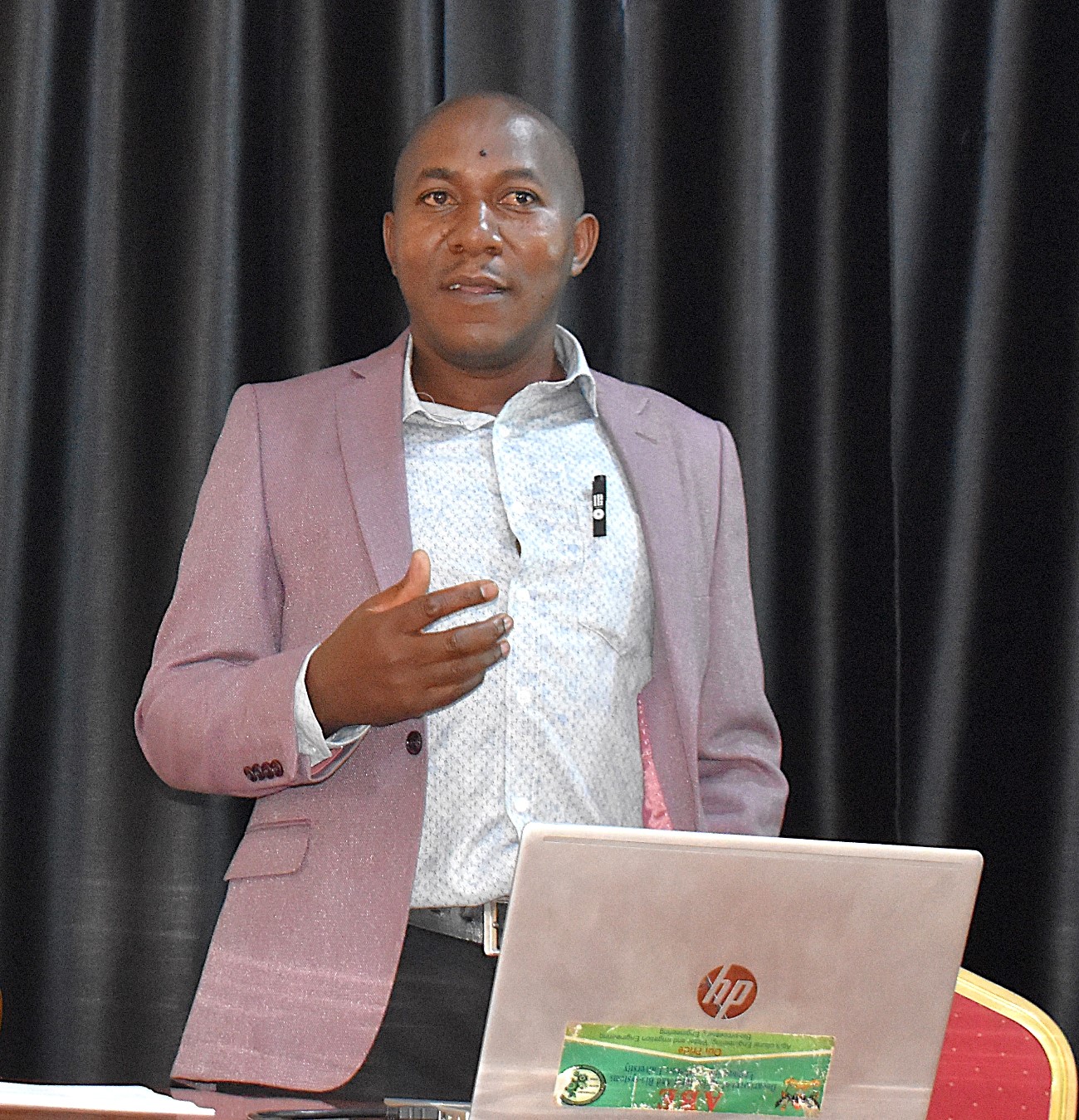
From June 23 to 27, 2025, Makerere University hosted a comprehensive Training of Trainers workshop. The training programme encompassed a diverse range of topics delivered by subject matter experts from institutions, including Makerere University (Department of Agricultural and Biosystems Engineering – CAES, and the College of Engineering, Design, Art and Technology – CEDAT), Hochschule University of Applied Sciences, and Busitema University. Participants were carefully selected from diverse professional backgrounds, including recent engineering graduates from CAES and CEDAT, Makerere University, University technical staff, personnel from Kyambogo University, officials from Buvuma District Works and Health Departments, and electricians from Kampala City. The training sessions were conducted at Makerere University and Buvuma Health Centre IV Hospital.
Training Modules Included:
- Sustainable energy systems and their practical applications
- Energy generation and storage technologies
- Solar water heating: design, operation, maintenance, and performance optimization of solar water heaters, crop dryers, and concentrating solar heaters
- Solar PV technologies in Uganda: cell technology, system design, operations, maintenance, and hands-on practicals for standalone and grid-connected systems
- Public health implications of water quality
- Water treatment and quality management, including protocols, parameters, and case study on the MCDI treatment system
- Water quality testing methodologies
- Introduction to sustainable refrigeration and cooling technologies
- Environmental impact and safety considerations for refrigerants
- Refrigeration cycles and component overview
- Life cycle assessment of SophiA technologies
- Thermal energy storage within the SophiA system
- Steam as a productive energy source
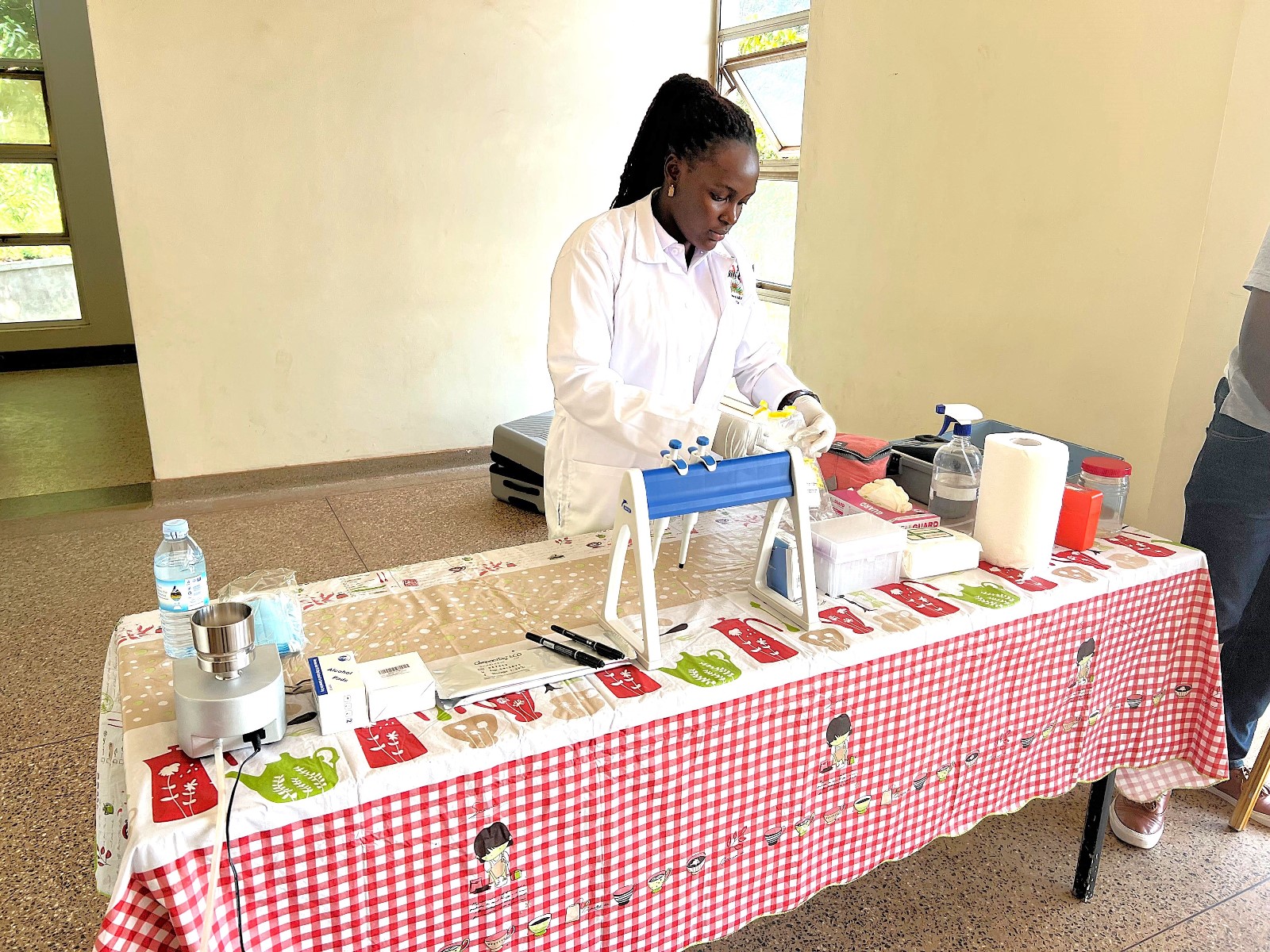
The Training Sessions
Day One: Introduction to foundational concepts in solar energy technologies
The first day of the SophiA Train the Trainers Workshop focused on building foundational knowledge in sustainable and solar energy systems. Led by Dr. Peter Tumutegyereize and Dr. Francis Mujjuni, participants explored a range of technologies and applications critical to clean energy deployment.
Key topics included:
Sustainable Energy Systems: Introduction to renewable energy systems including bioenergy, hydro, wind, geothermal, hydrogen fuel cells, and battery storage.
Solar Radiation & Geometry: Understanding solar constants, irradiance, and the impact of atmospheric conditions on solar performance.
Solar Thermal Technologies: Detailed look at solar water heating systems (FPCs and ETCs), maintenance, sizing, and solar dryers for agricultural and industrial use.
Photovoltaic (PV) Systems: Working principles, types of PV cells, performance factors, and diagnostics. Practical testing techniques and metrics like Voc, Isc, MPP, and PR were discussed.
Simulation & Application: Olivia Nakiwanuka demonstrated a PVsyst-based simulation of a 2.55 kWp standalone system for a conference hall, showing a high solar fraction (97.88%) and low LCOE (USD 0.03/kWh).
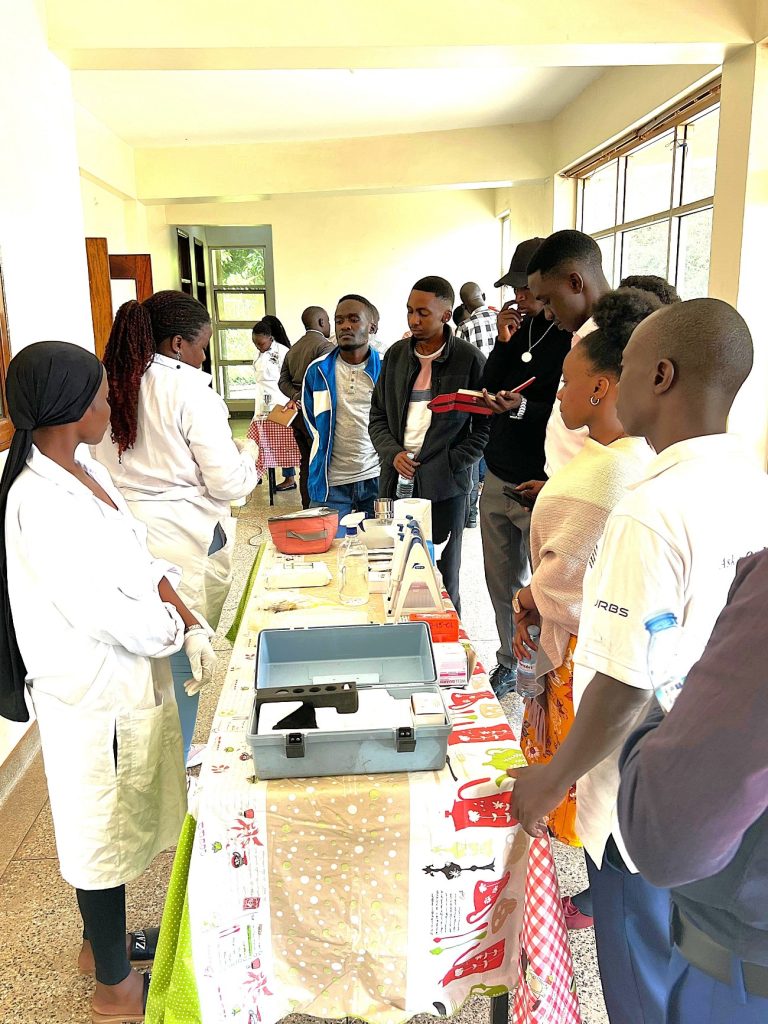
The sessions emphasized practical skills, performance analysis, and real-world application, equipping participants to train others and support solar adoption, especially in rural and off-grid settings.
Day Two: Water Treatment Technologies
The second day focused on water treatment technologies relevant to low-resource healthcare settings. Facilitated by Sneha De and Mr. Duc Dinh Ngoc from Hochschule Karlsruhe University, sessions covered technical, environmental, and operational challenges, with contributions from Dr. Joshua Wanyama on water quality management and Dr. Prossie Nakawuka on practical water testing.
Key challenges addressed included unreliable water supply and contamination in healthcare facilities, emphasizing the need for decentralized water treatment, especially in rural areas.
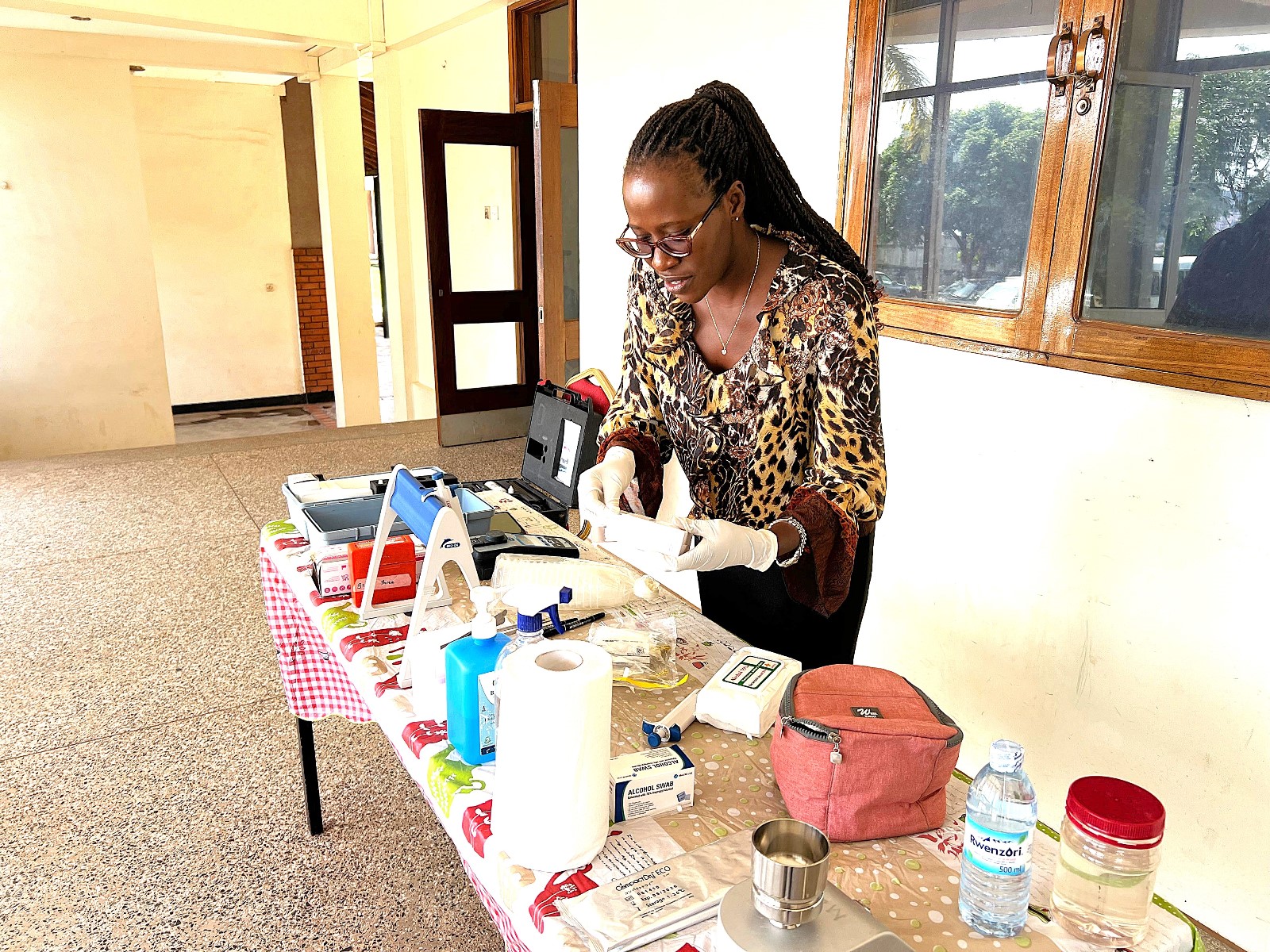
Sneha De reviewed biological and physical/chemical water treatment methods, highlighting technologies such as activated sludge, filtration, membrane bioreactors, and advanced disinfection techniques. The SophiA modular water treatment system, integrating ultrafiltration and membrane capacitive deionisation (MCDI), was introduced as a scalable solution for producing safe drinking and deionised water for medical use.
Mr. Duc Dinh Ngoc trained participants on the MCDI technology, an energy-efficient method for salt and fluoride removal suitable for low-salinity water.
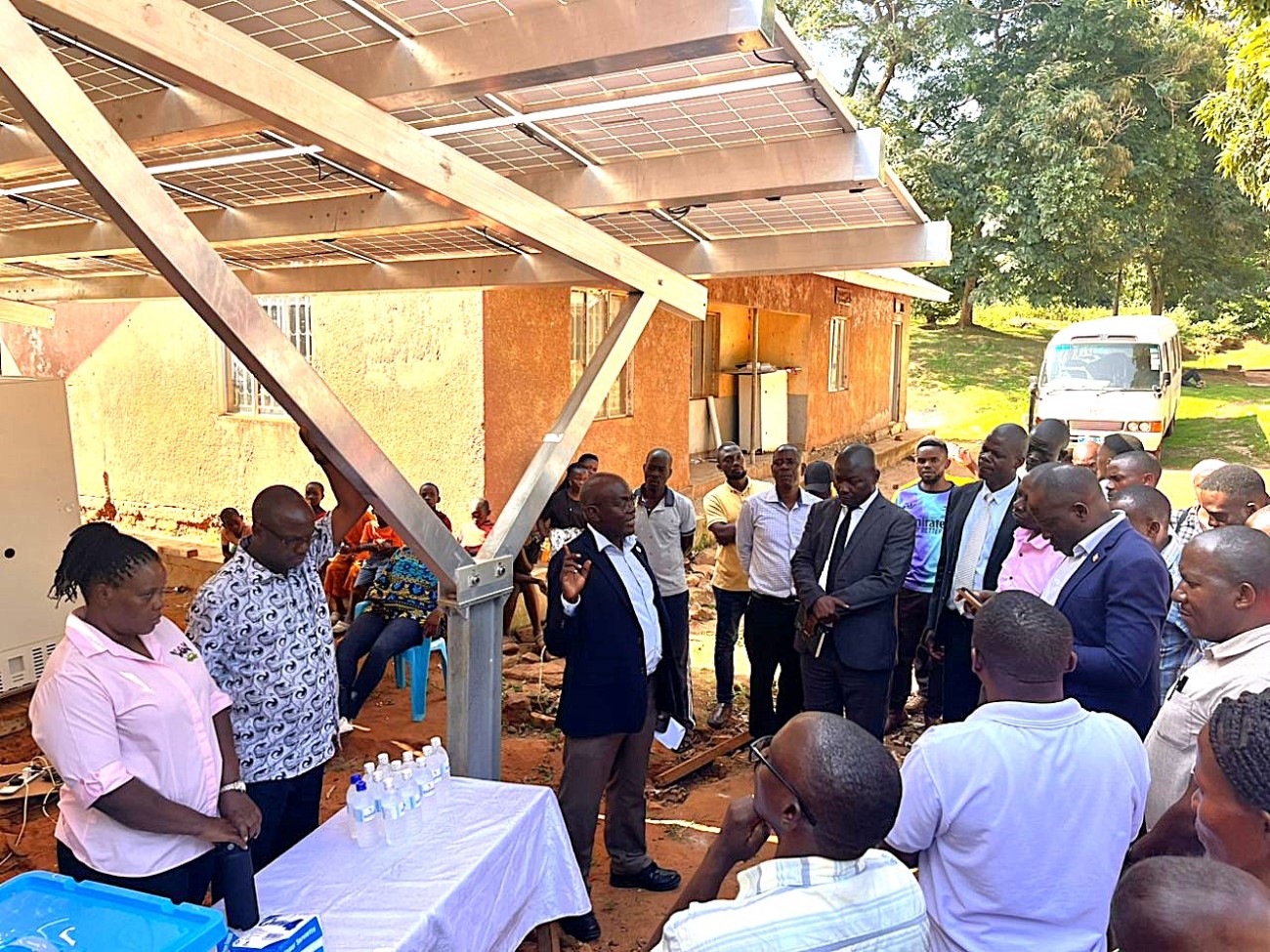
Dr. Joshua Wanyama discussed the water quality management protocols, outlining key physical, chemical, and biological water parameters and monitoring strategies, including modern IoT-based tools, to ensure water safety and public health.
The day concluded with a hands-on lab session by Dr. Prossie Nakawuka, where participants practiced water quality testing using turbidimeters, incubators, and filtration techniques.
Overall, Day Two combined theoretical insights, technology demonstrations, and practical skills, preparing participants to implement sustainable water treatment and quality management systems in healthcare environments.
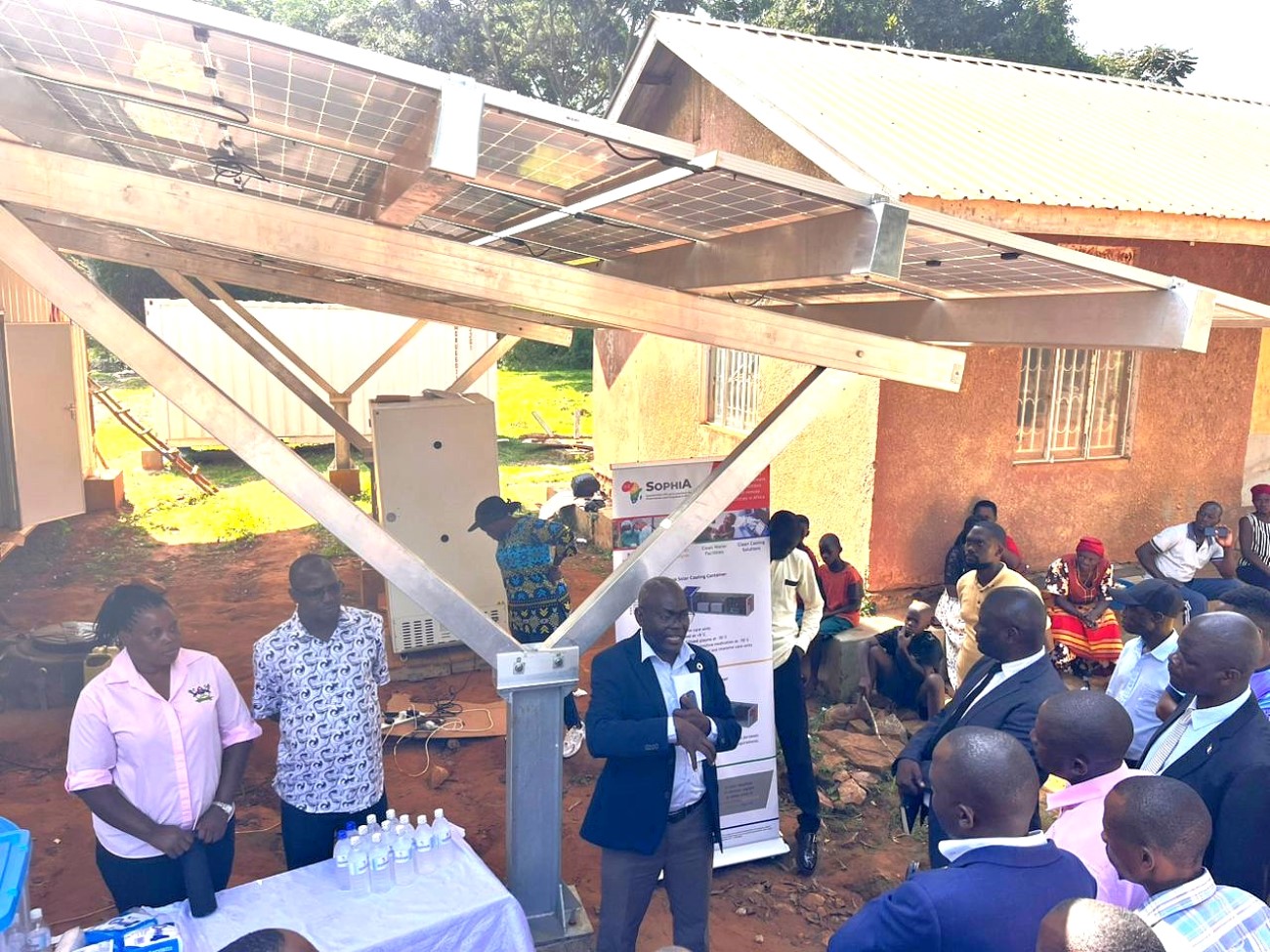
Day Three: Refrigeration and Cold Storage
The third day of the SophiA workshop focused on sustainable refrigeration and cold storage technologies tailored for healthcare in Sub-Saharan Africa. Experts discussed energy-efficient, climate-friendly cooling solutions vital for vaccine storage, medicines, and diagnostics, especially in off-grid and rural settings.
Key highlights included the introduction of solar-powered and biomass-based refrigeration systems, thermal energy storage methods, and the use of natural refrigerants like propane, ammonia, and CO₂ as environmentally safer alternatives. Presentations emphasized the critical role of refrigeration in healthcare and the urgent need to replace harmful chemicals with sustainable technologies.
Sessions covered real-world applications such as the SophiA cooling containers in Burkina Faso, safety protocols for flammable refrigerants, and the environmental and economic benefits of solar refrigeration systems assessed through life cycle analysis.
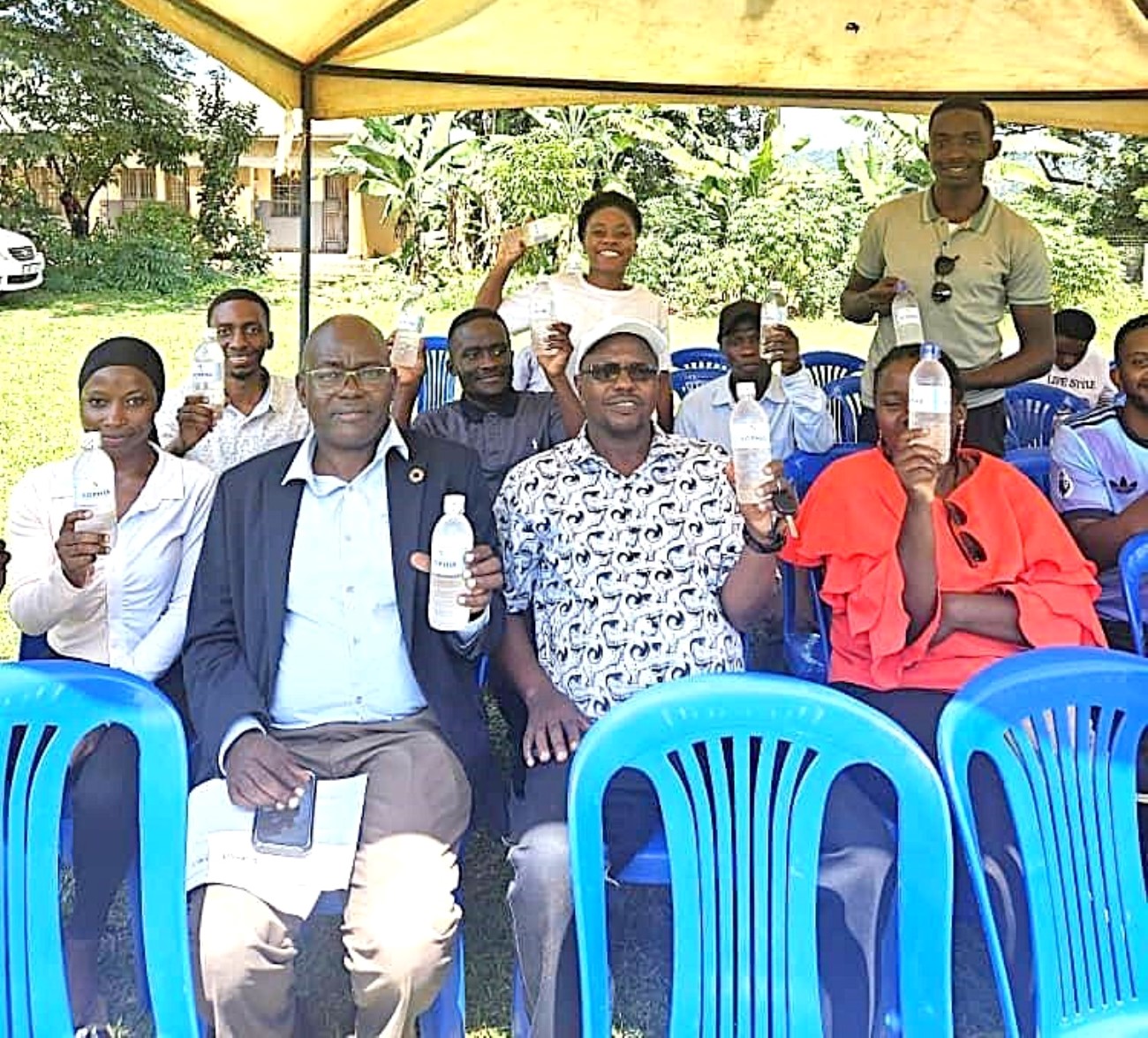
The day ended with an interactive quiz and discussion, reinforcing learning and encouraging participants to apply sustainable cooling practices in their communities.
Day Four: World Refrigeration Day & Field Visit to Buvuma Island
The fourth day of the SophiA Train the Trainers workshop was dedicated to the celebration of the World Refrigeration Day and a field excursion to Buvuma Island, providing participants with a unique opportunity to witness the SophiA system in action. The day was coordinated by Dr. Sarah Bimbona and Dr. Nicholas Kiggundu, who led the delegation to Buvuma Health Centre IV, the pilot site for the SophiA installation in Uganda.
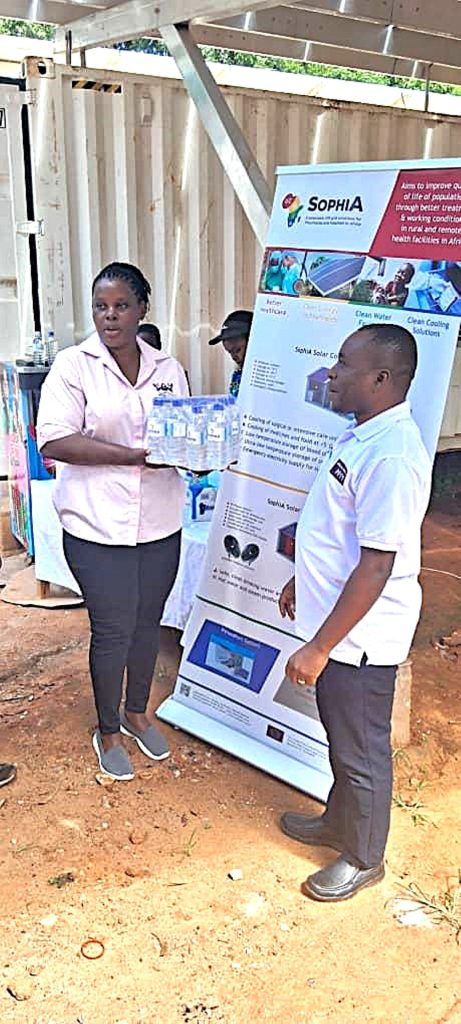
The visit served as both a practical extension of the previous day’s technical sessions and a community engagement event. Participants were able to observe the installed SophiA system, which integrates solar-powered refrigeration, water treatment and steam generation technologies designed for off-grid healthcare settings. During the visit, Dr. Kiggundu provided a detailed briefing to local stakeholders, including representatives from the Buvuma District Local Government, delegates from the Buganda Kingdom, and members of the local community. He explained how the SophiA system will enhance healthcare delivery on the island through reliable cold storage for vaccines and medicines, access to clean drinking water, and steam generated for cooking and use in the maternity wards.
As part of the long-term sustainability plan for the SophiA system, the launch of SophiA Water was announced, an entrepreneurial initiative designed to generate revenue locally for the operation and maintenance of the system.
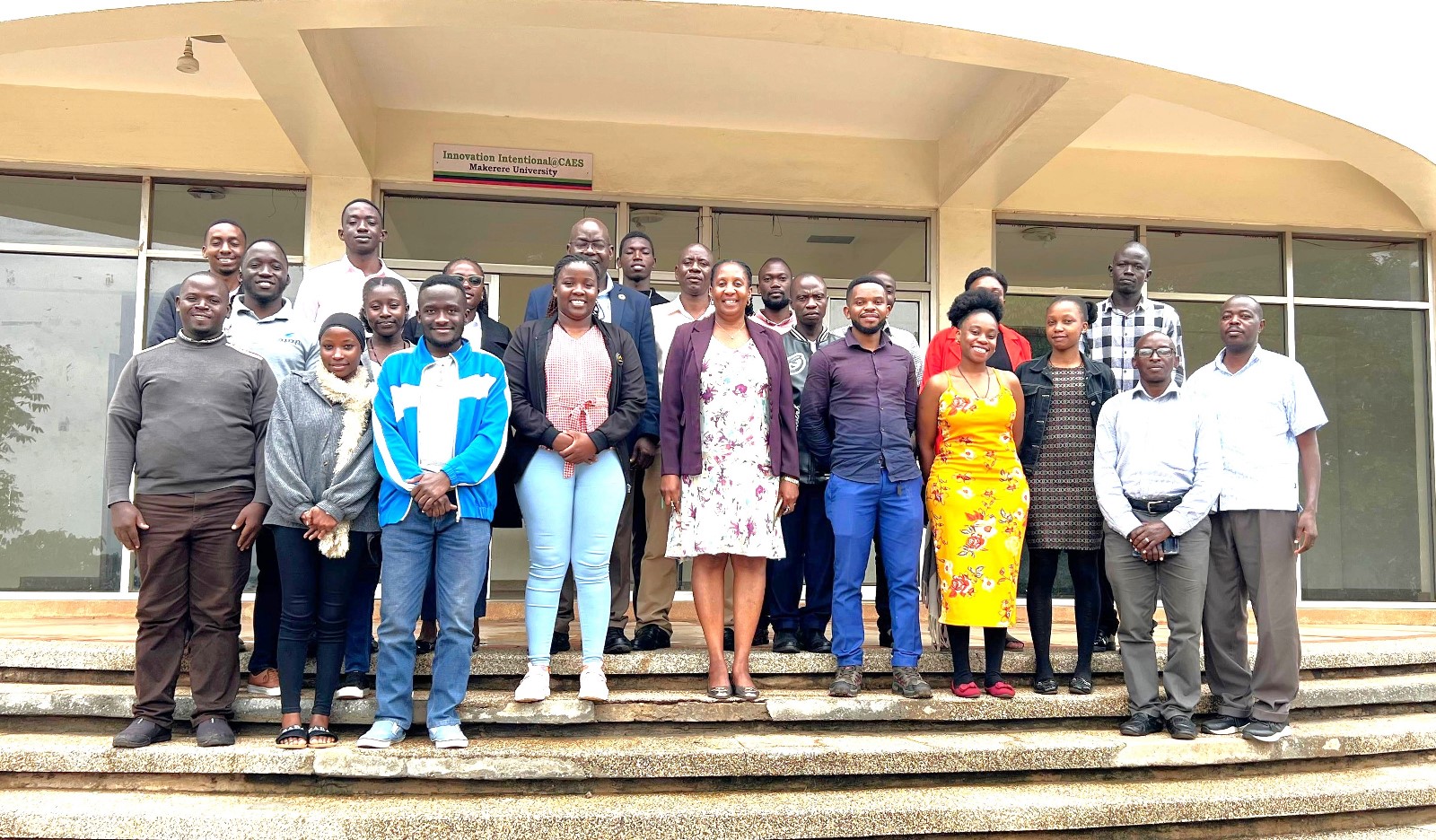
The field trip ended with a certificate awarding ceremony in appreciation of the participants’ dedication and active engagement throughout the training programme.
Agriculture & Environment
APRC Trains Graduate Students & Stakeholders in the Use of the African Agriculture Adaptation Atlas
Published
1 week agoon
July 3, 2025
The Agricultural Policy Research Centre (APRC), housed within the College of Agricultural and Environmental Sciences (CAES) at Makerere University, continues to play a pivotal role in shaping Uganda’s agricultural future through evidence-based policymaking. With a mission to ensure that agricultural policies are grounded in empirical research and data, APRC is actively investing in capacity-building initiatives that empower researchers, policymakers, and development actors.
In a significant stride toward building climate resilience in African agriculture, APRC recently organized a two-day intensive training workshop focused on the African Agriculture Adaptation Atlas (AAAA) – a state-of-the-art, web-based decision-support platform that facilitates the integration of climate data into agricultural planning and policy.

The workshop, held on Wednesday 25th and Thursday 26th June 2025 at the School of Agricultural Sciences, Makerere University, targeted two key groups: graduate students on the first day, and university faculty, government officials, and development practitioners on the second. This structure ensured tailored learning experiences for both emerging and seasoned professionals, helping to bridge the gap between academic research and real-world policy implementation.
The African Agriculture Adaptation Atlas (AAAA) is designed to provide dynamic, data-rich visualizations that support informed decision-making in agriculture and food systems across the continent. Through interactive maps and analytical tools, users can explore projected climate impacts, evaluate risks, and identify localized, climate-smart adaptation strategies.

Throughout the sessions, participants received hands-on training in a broad range of AAAA functionalities, including:
- Leveraging the Atlas for research and policy communication: Enhancing the ability of scientists and policy actors to translate complex climate data into actionable insights;
- Assessing projected climate impacts and associated agricultural risks: Essential for forward-looking planning and risk mitigation;
- Identifying climate-smart investment options, with a particular focus on the livestock sector, which is especially vulnerable to climate shocks;
- Analysing gendered vulnerabilities: Examining how climate change disproportionately affects women in agricultural communities;
- Understanding the implications of heat stress on agricultural productivity: Supporting targeted interventions to protect producers and their livelihoods;
- Estimating the economic returns of adaptation strategies: Aiding in prioritizing investments and allocating limited resources effectively.

Prof. Bernard Bashaasha, the APRC Coordinator, emphasized the importance of the training in advancing Africa’s adaptation agenda. “As climate change continues to threaten food security and disrupt livelihoods across the continent, tools like the AAAA, and the skills to use them effectively are essential. They empower decision-makers to craft policies that are adaptive, inclusive, and rooted in science,” he noted.
The workshop was coordinated by Dr. Florence Rwiza, Lecturer in the Department of Agribusiness and Natural Resource Economics at CAES.
More photos from the Training






Agriculture & Environment
NbS4Tea Project Team Makes Great Progress, Deploys Drones for Data Collection
Published
3 weeks agoon
June 24, 2025
****Funded by the Danish Fellowship Centre under Denmark’s Ministry of Foreign Affairs, NbS4Tea is a five-year initiative aimed at enhancing climate resilience and tea productivity in Uganda.
Launch of drones for data collection
The Nature-based Solutions for Tea (NbS4Tea) project has registered a significant milestone with the successful deployment of drones to improve environmental and agricultural data collection.
On 19th June 2025, the project team officially launched the drones at the Rwebitaba Tea Research Centre in Kyenjojo District, the project’s main research hub. The launch event included hands-on training sessions by Mr. Timothy Mutungi, a certified Remote Sensing Drone Pilot. Mr. Mutungi provided detailed instruction on drone operation, safety procedures, and data acquisition techniques specifically tailored to the project’s goals. The training was attended the core NbS4Tea researchers as well as students supported by the project.

By utilizing drone technology, the team will be able to capture high-resolution imagery and gather critical environmental data across vast tea-growing areas. This will enable more precise assessments of biodiversity, soil health, water use, and overall ecosystem services. The valuable insights generated will guide the development of sustainable, nature-based agricultural practices with the potential for widespread adoption throughout the tea industry.
About the NbS4Tea Project
NbS4Tea is a five-year initiative aimed at enhancing climate resilience and tea productivity in Uganda. Funded by the Danish Fellowship Centre under Denmark’s Ministry of Foreign Affairs and led by Dr Emmanuel Arthur from Aarhus University, the project is being implemented through a consortium of Ugandan and Danish institutions namely: Makerere University, the National Agricultural Research Organization (NARO), Uganda, Uganda Tea Association, Aarhus University, Denmark, and Kick-start International.

The primary objective of the project is to sustainably close the tea yield gap in Uganda by developing research-driven, nature-based solutions that enhance the climate resilience of tea production systems. This involves identifying climate-resilient tea varieties, integrating tea prunings and banana by-products, utilizing nitrogen-fixing agroforestry trees, and improving irrigation management. The approach emphasizes socio-economic feasibility, capacity building in research, and a market-oriented, multi-stakeholder collaboration to ensure both environmental and economic sustainability.
At Makerere University, the project is coordinated by Dr Alex Nimusiima from the Department of Geography, Geo-Informatics and Climatic Sciences at CAES. Other Project members are; Dr Grace Nakabonge from the Department of Forestry, Biodiversity and Tourism; Dr Prossy Nakawuka from the Department of Agricultural and Bio-systems Engineering; Dr Twaha Ali Basamba from the Department of Agricultural Production; and Dr Alice Turinawe from the Department of Agribusiness and Natural Resource Economics.

Specific objectives
- Identify and quantify climate change impacts on tea yield and quality based on historical and newly obtained data and novel data mining methods.
- Screen, select and recommend tea varieties adapted to abiotic (drought and heat) and biotic stresses (diseases and pests).
- Develop new knowledge on the potential of local waste biomass (tea prunings, banana pseudostems and peels) as soil amendments- mulch, compost, biochar, to recycle nutrients, improve soil fertility, increase carbon sequestration and alleviate drought.
- Reveal NbS through agroforestry combined with organic mulch, irrigation and resilient tea varieties that increase biodiversity and tea yield.
- Innovate new methods to enhance tea production under climate change through rainwater harvest and climate-smart irrigation infrastructure.
- Empower vulnerable groups (women, youth, and people with disabilities) in tea production and processing to ensure multi-actor involvement and socio-economic benefit outreach of the proposed NbS in tea cultivation and production.
- Identify export market strategies for NbS tea products, aligned with consumer preferences.

Progress thus far
Launched in January 2024, the project, organized in five work packages, has registered significant progress. Each of the work packages listed below supports one PhD student and one Masters’ student. The PhD students are: i) Mr. Adiga Hassan from the Department of Geography, Geo-Informatics and Climatic Sciences at CAES conducting research under work package 1; ii) Ms. Sarah Namayengo from the Department of Forestry, Biodiversity and Tourism conducting research under work package 2; Ms. Vivian Namutebi from the Department of Soil Science and Land Use Management undertaking research on work package 3; Mr. Keneth Chelimo from the Department of Agricultural and Biosystems Engineering conducting his research under work package 4; and Ms. Moreen Asasira from the Department of Agribusiness and Natural Resource Economics focusing on work package 5. The Masters students are: i) Ms. Evelyn Katasi from the Department of Environmental Management at CAES (work package 1), Mr. Vereriano Turyahebwa from Department of Forestry, Biodiversity and Tourism (work package 2); Mr. Ben Okurut from the Department of Soil Science and Land Use Management (work package 3); Mr. Augustine Okot from the Department of Agricultural and Biosystems Engineering (work package 4); and Mr. Augustine Kigozi from the Department of Agribusiness and Natural Resource Economics (work package 5)

Work packages and achievements registered
Work Package 1: Climate change impacts on tea yield and quality – Headed by Dr. Alex Nimusiima
This work package centres on the analysis of historical and projected climate conditions in the study area. It examines how current climate patterns influence tea production, as well as the potential effects of future climate change on tea yield and quality.
Progress
i) A household survey assessing the socio-economic status of tea farmers and the effects of climate variability on their livelihoods has been completed.
ii) The collected data has been cleaned, and the Masters student supported under this work package is currently writing her thesis based on the survey findings.
iii) A historical climate analysis of the study area has been conducted by the PhD student, who is now preparing a manuscript.

Work Package 2: Screening & selecting tea genotypes for resilience to abiotic and biotic stresses – Headed by Assoc. Prof. Grace Nakabonge
This work package focuses on evaluating existing tea genotypes for their resistance to pests and diseases, using chlorophyll fluorescence imaging as a diagnostic tool.
Progress
i) A screen house has been constructed to serve as the experimental site.
ii) Germplasm from two tea varieties is currently being cultivated in the screen house in preparation for the upcoming experiments.
iii) A drone has been acquired to assist in data collection for this work package.

Work Package 3: Evaluation of NbS for climate resilience, higher yield and biodiversity- Headed by Assoc. Prof. Twaha Ali Basamba
This focuses on the characterization of mulch and biochar derived from tea prunings to improve soil health. It also aims to quantify the added value of Nature-based Solutions (NbS) in enhancing tea productivity, promoting climate resilience, and supporting biodiversity.
Progress
- So far, Biochar has been produced from tea prunings and characterized.
- The Masters student supported under this work package is writing his thesis on the results of biochar characterization.

Work Package 4: Innovating smart and scalable irrigation technology for improved tea production- Headed by Dr. Prossie Nakawuka
This work package aims to develop and evaluate smart, scalable irrigation solutions to boost tea production. It focuses on assessing how irrigation impacts tea yield and quality, measuring water use efficiency, and analyzing the economic returns of irrigation practices. Additionally, it explores deficit irrigation and climate-resilient strategies to ensure sustainable tea farming in changing environmental conditions.
Progress
- The irrigation infrastructure is now in place and fully operational at Rwebitaba Tea Research Centre in Kyenjojo District.
- The experimental plots for irrigation experiments are already in place with water pipes.

Work package 5: Socio-economic assessment of tea-agroforestry and selected tea varieties – Headed by Dr. Alice Turinawe
This work package emphasizes co-creation within multi-stakeholder innovation networks to evaluate the economic feasibility and market access of tea agroforestry systems. It also focuses on promoting gender balance and understanding consumer valuation of Nature-based Solutions (NbS) tea from Uganda.
Progress
To date, two co-creation workshops have been successfully conducted and the Masters student under this work package is currently analyzing the workshop results as part of their research.

Expected outputs and outcomes
- Increased tea production, productivity, and biodiversity through the adoption of NbS.
- Increased research and technical capacity of Makerere and R-ZARDI.
- Holistic stakeholder insight on economic feasibility, consumer acceptance and market access strategies, especially for vulnerable groups in the tea value chain.
- Increased job prospects for youth and women in tea production sub-sectors.
- Improved social status and increased incomes of tea farmers, traders, and exporters.
- Improved economic and environmental quality by recycling biomass waste into value-added products dedicated to soil enhancement.
- 4+ high-yielding tea genotypes adapted to drought and heat, diseases and pests.
- 15+ scientific articles, conference presentations.
- Five PhDs and Five MSc degrees.
- Market access assessment and empowerment.

Details on the project: https://news.mak.ac.ug/2024/01/new-caes-project-to-improve-tea-production-in-uganda/
More photos from the event



Trending
-

 Education1 week ago
Education1 week agoAdmission List to Bachelor of Education External (BED) 2025/26 -Private Sponsorship
-

 General2 weeks ago
General2 weeks agoUndergraduate Admission List Self Sponsorship Scheme 2025/2026
-

 General5 days ago
General5 days agoRe-advert: Admission to Undergraduate Programmes 2025/2026
-
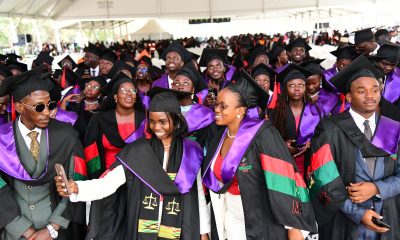
 General1 week ago
General1 week agoAdmission Lists for – Bachelor of Laws 2025-26
-
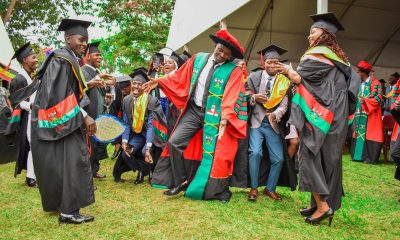
 General1 week ago
General1 week agoDiploma/Degree Holders Scheme – Self Sponsorship Admission Lists 2025/26
